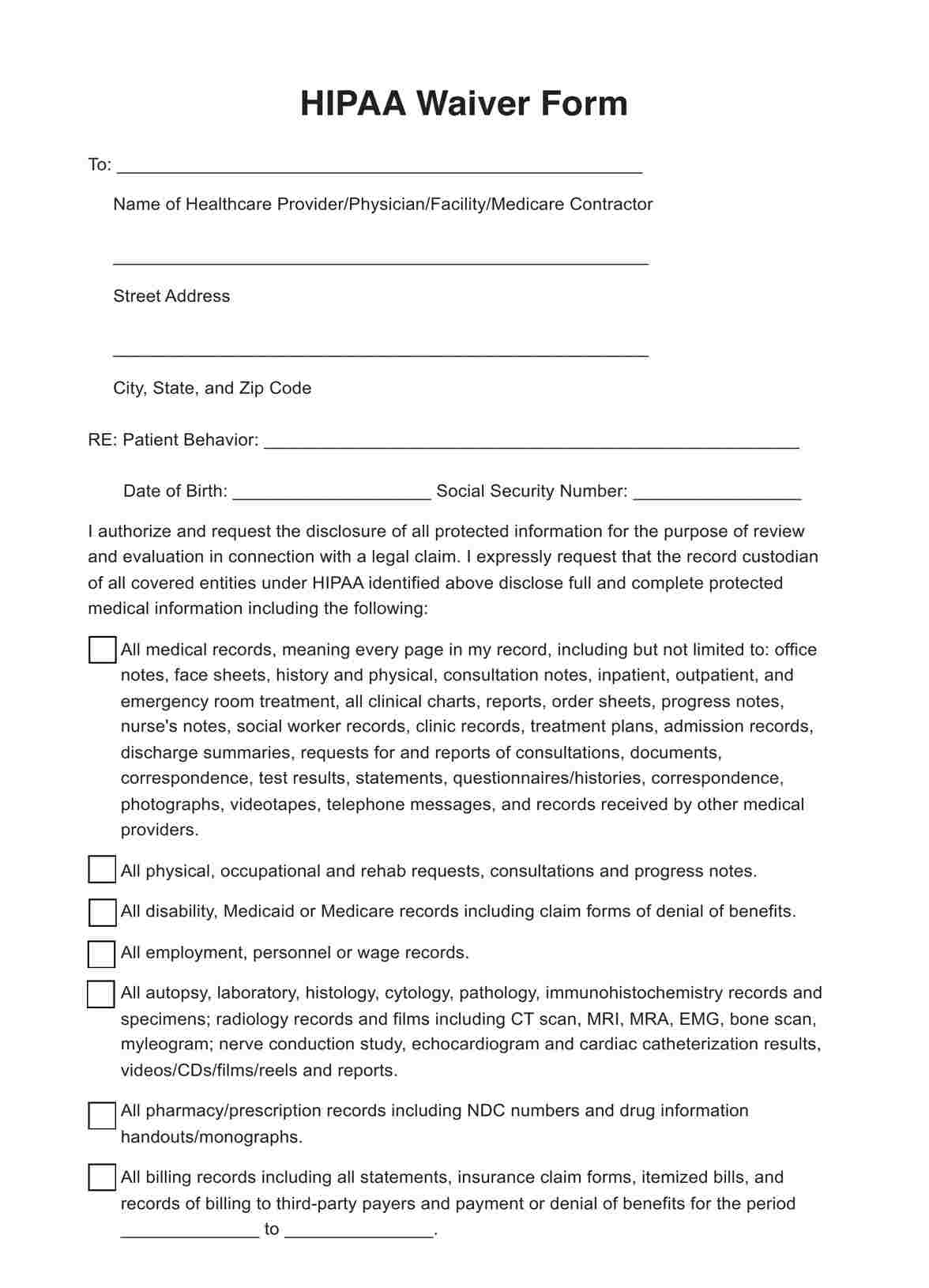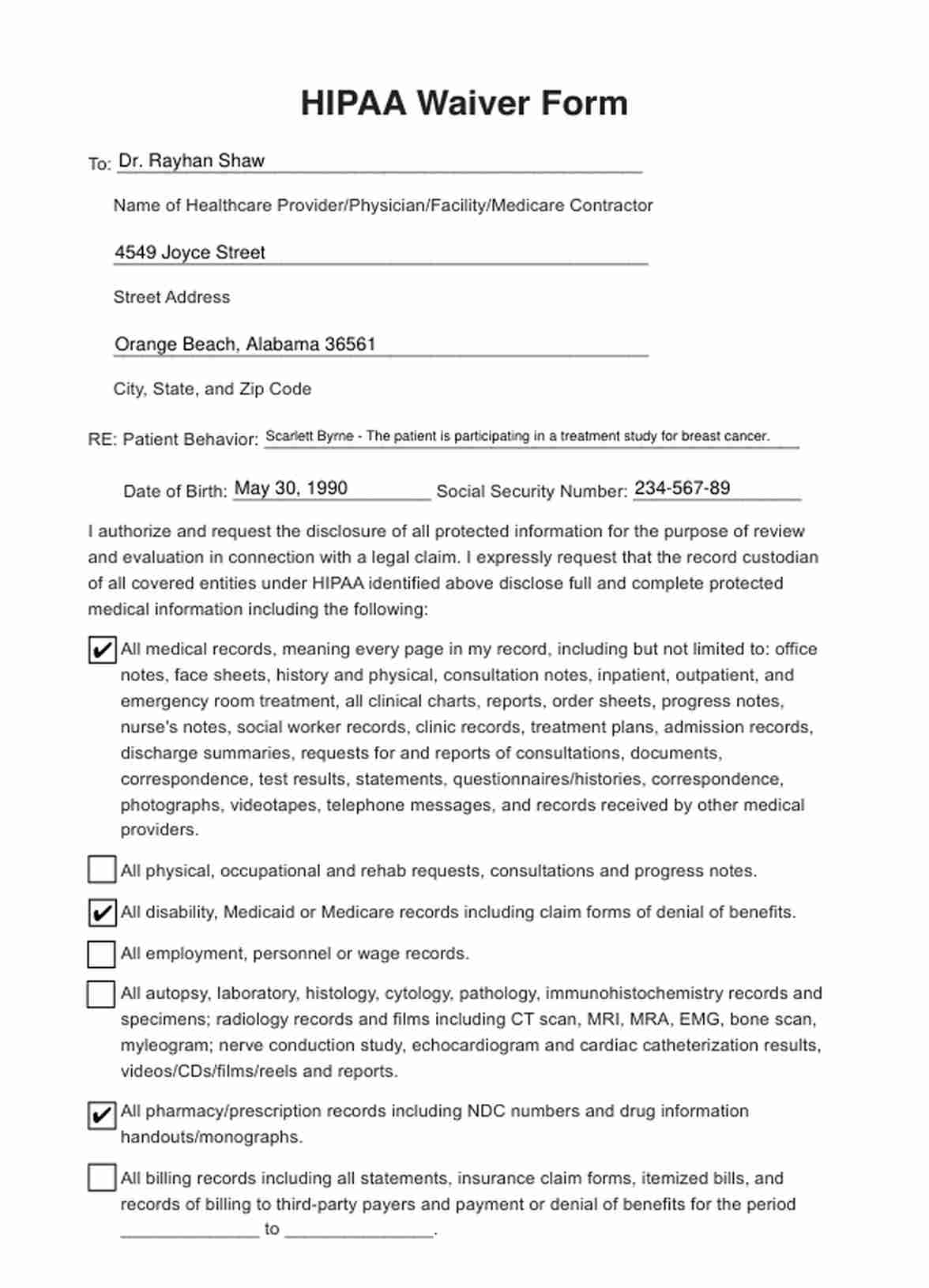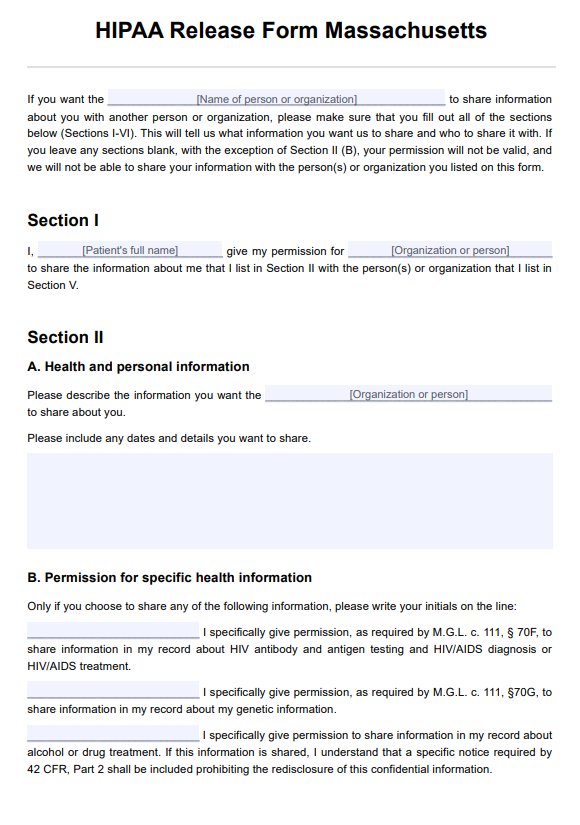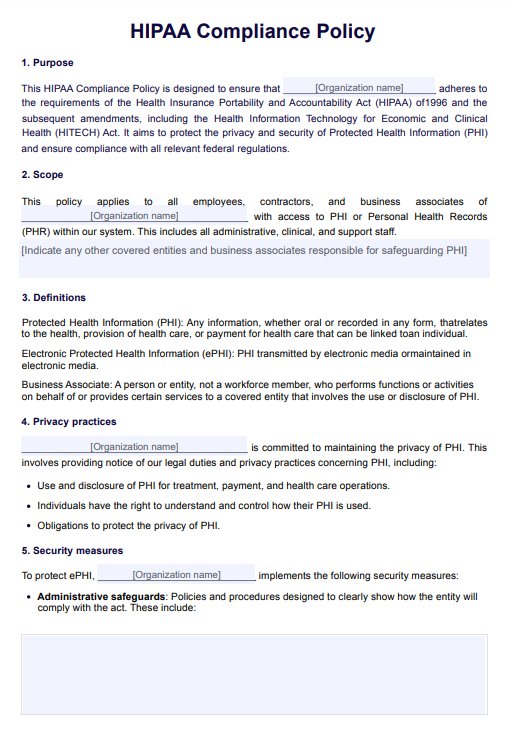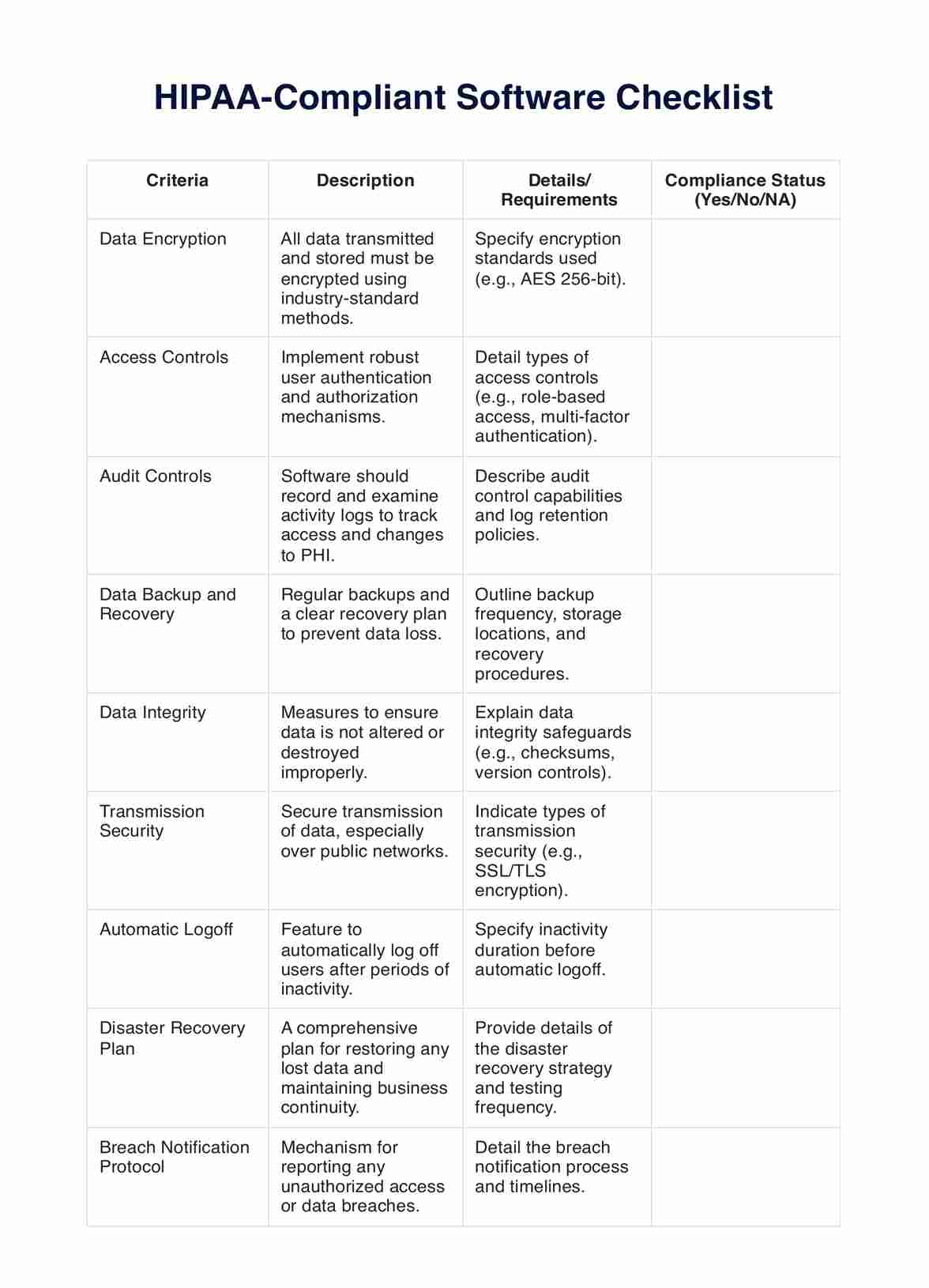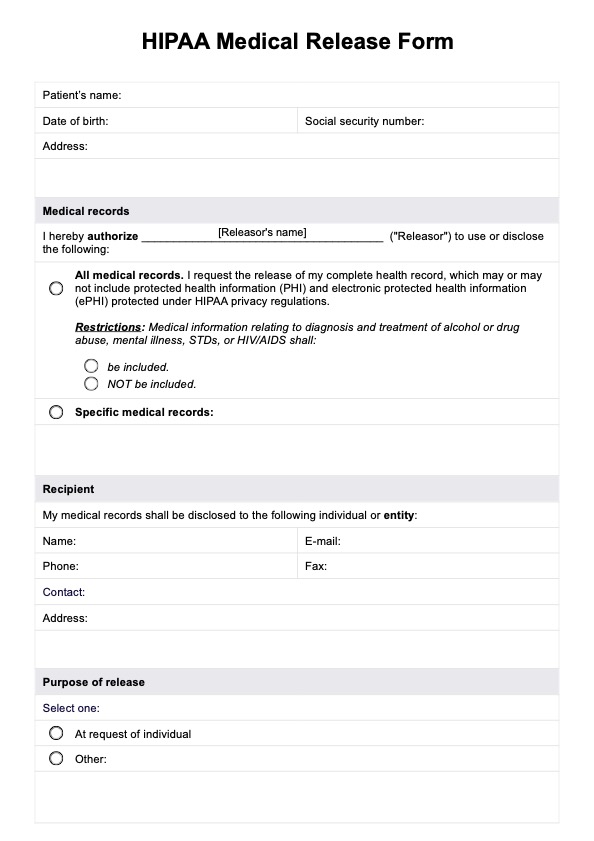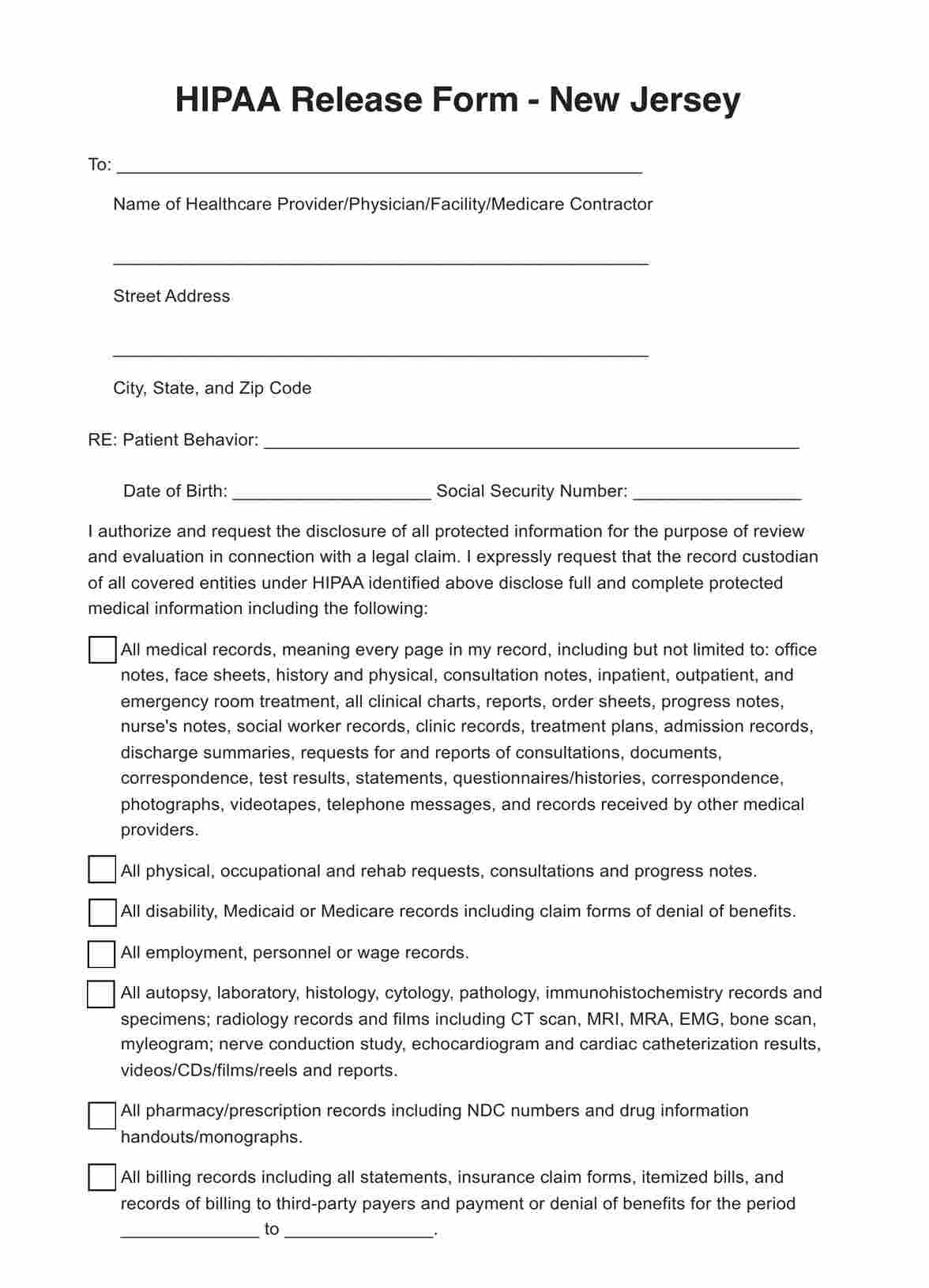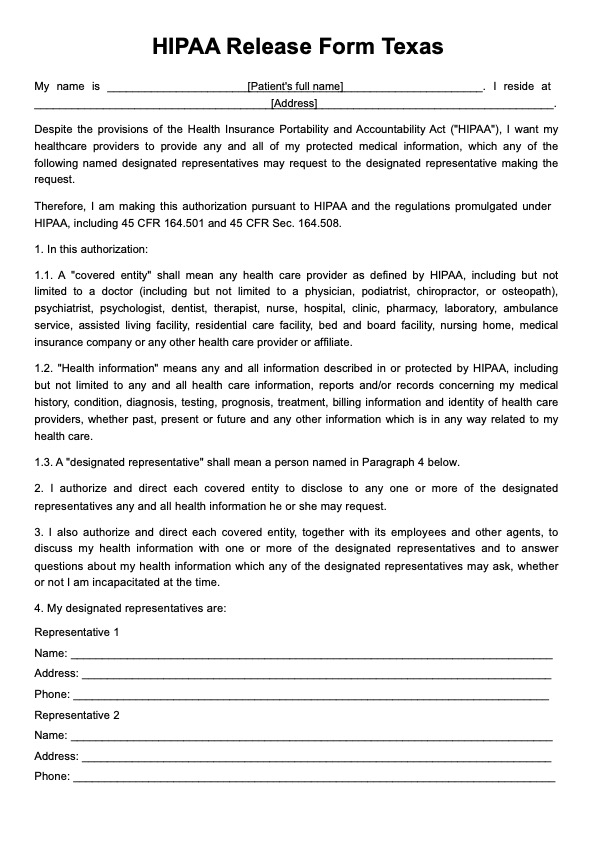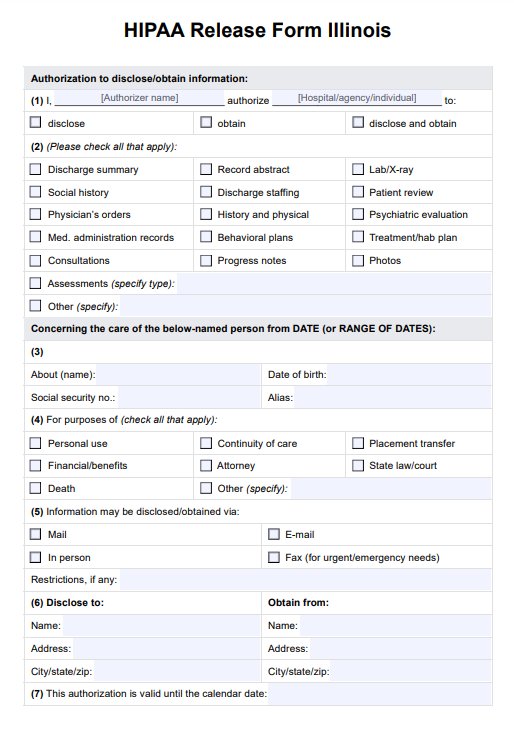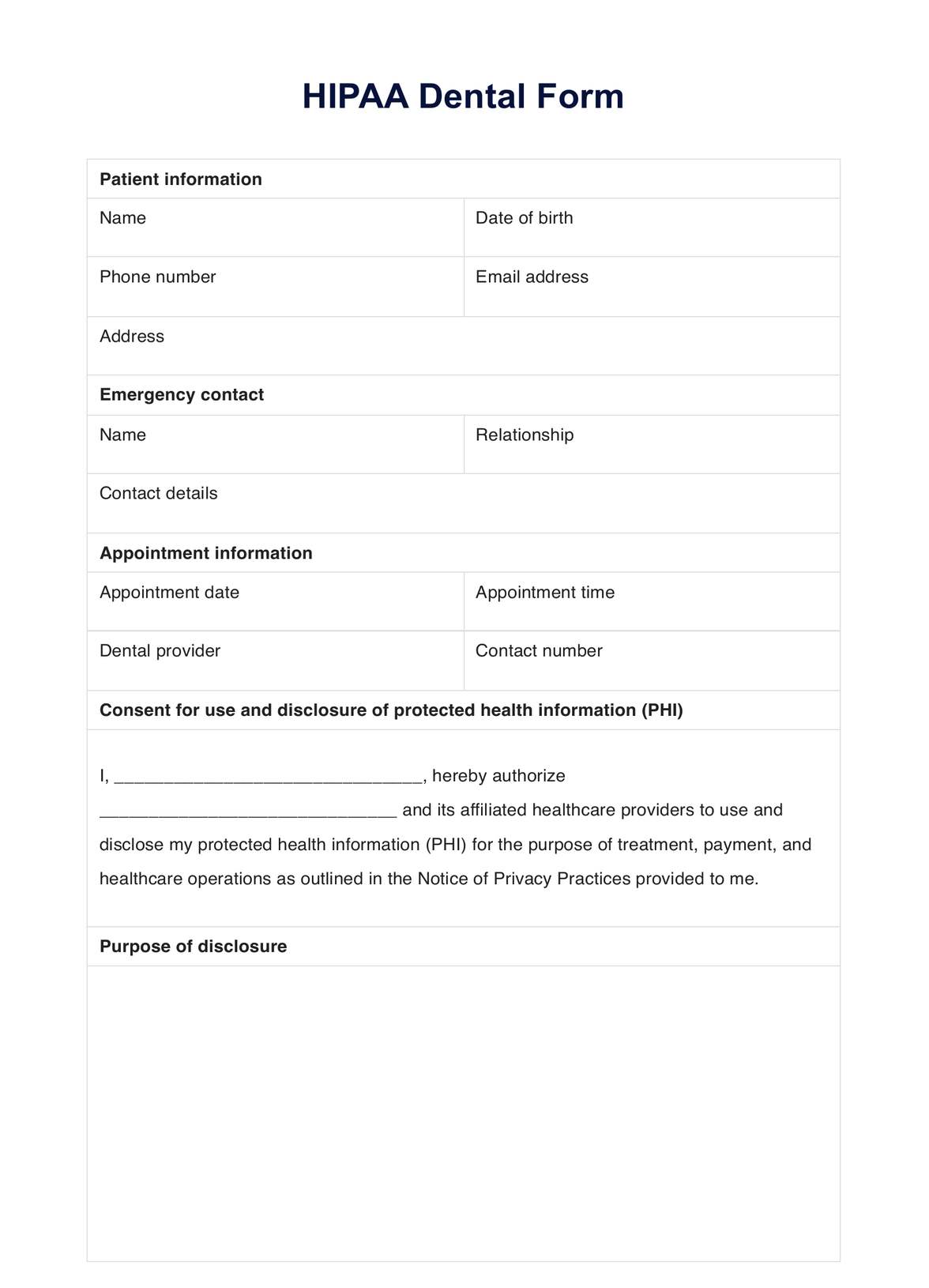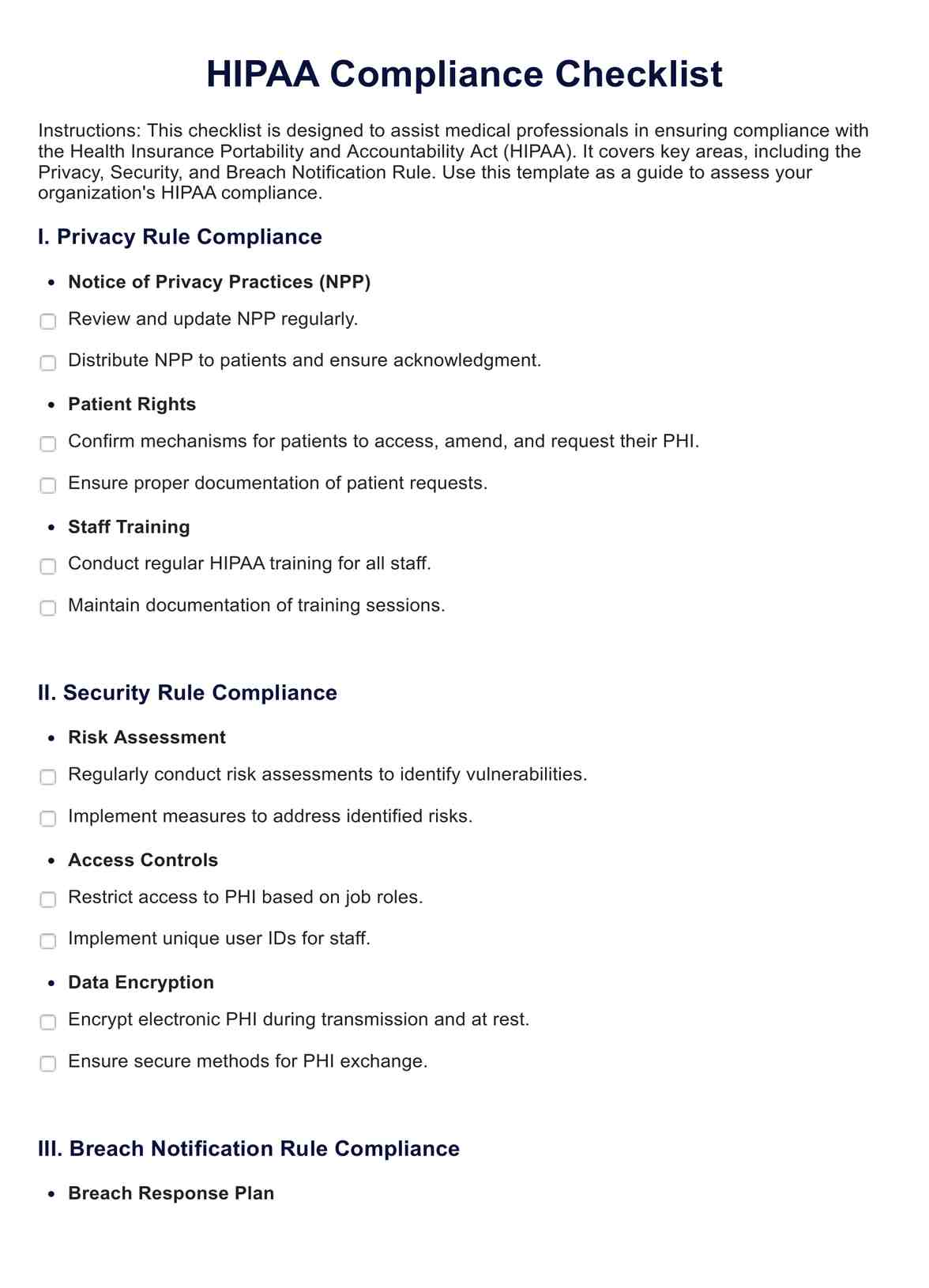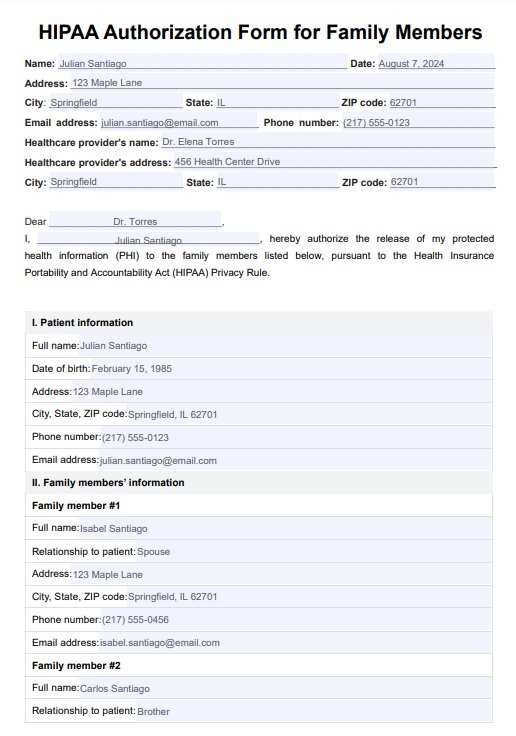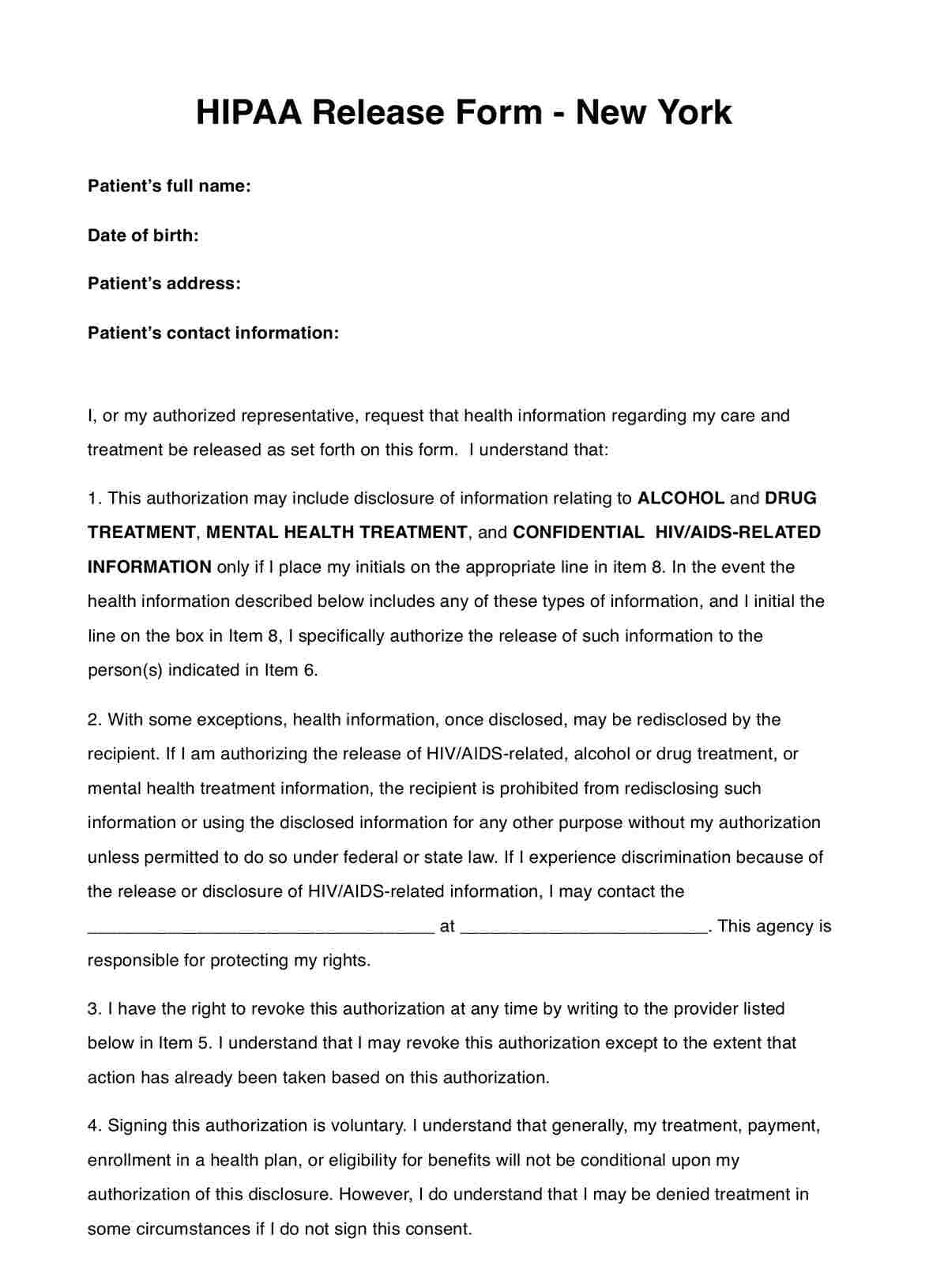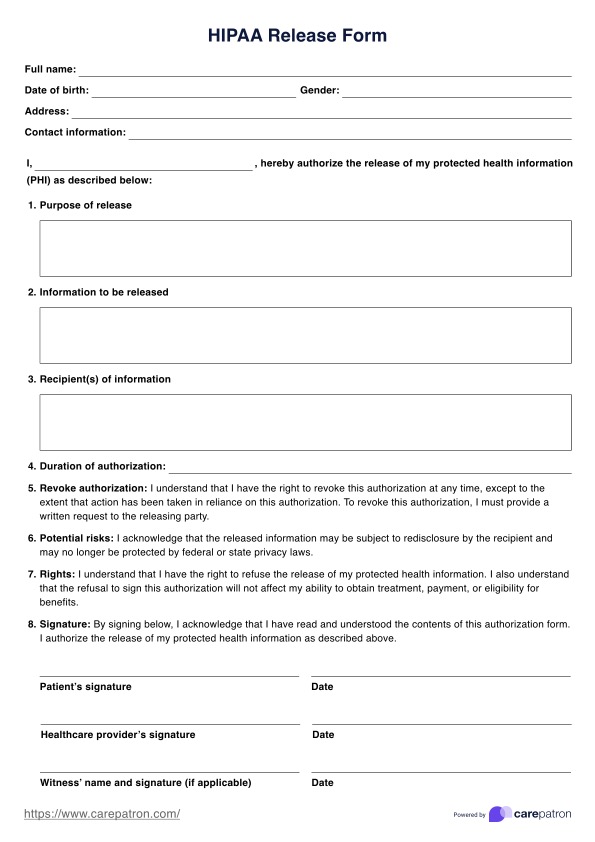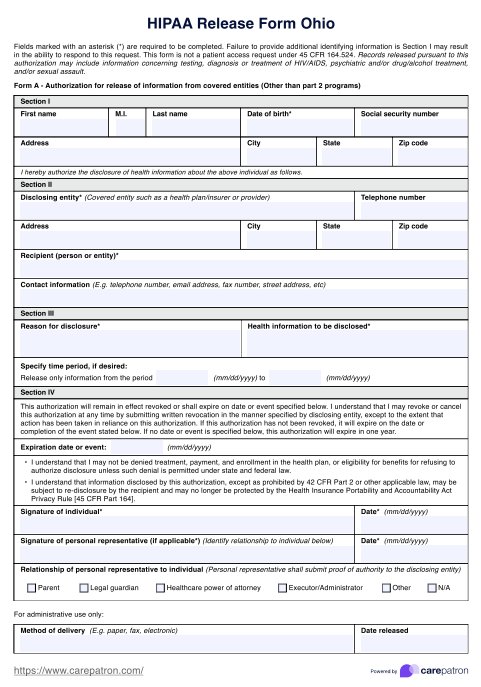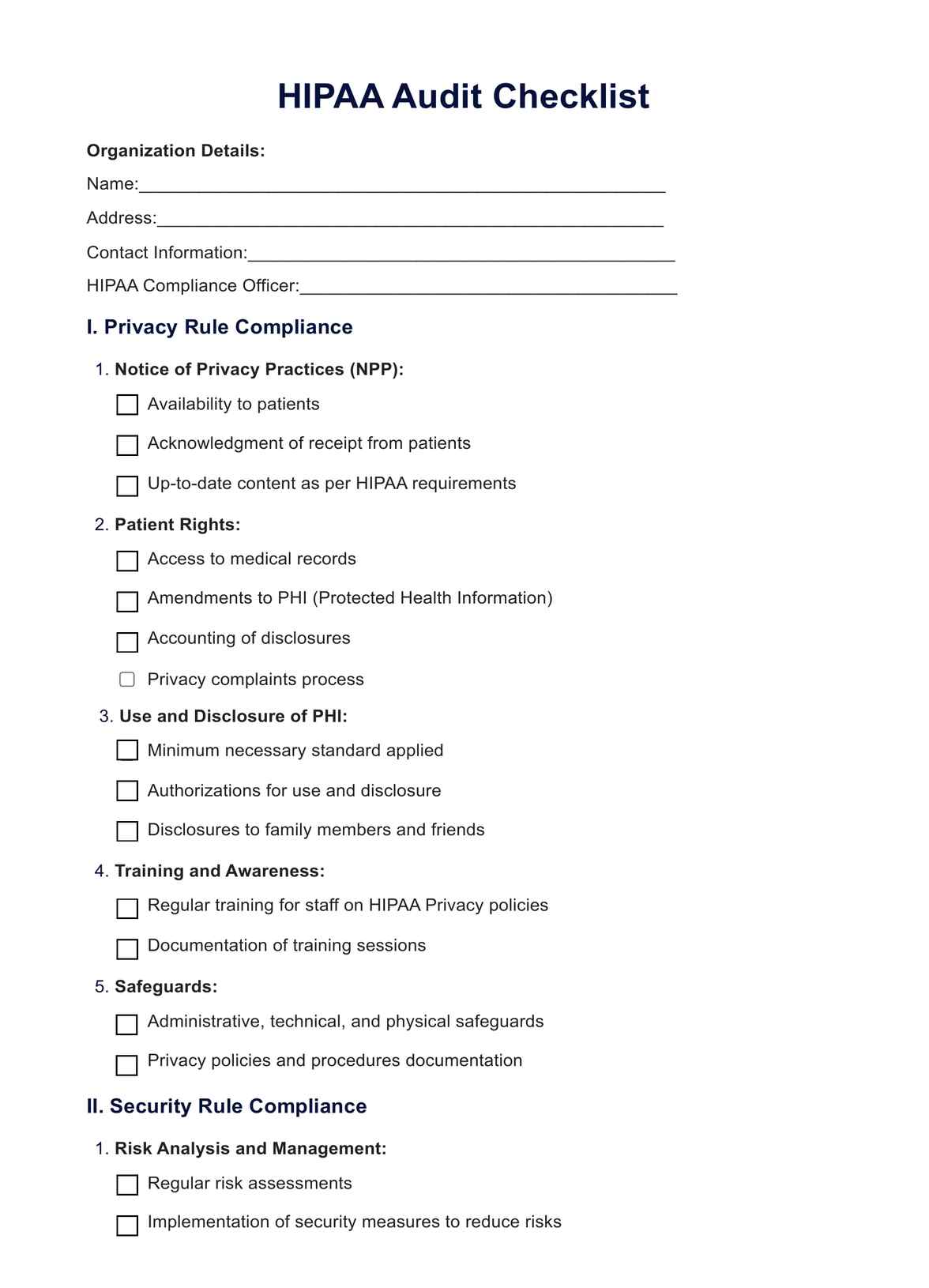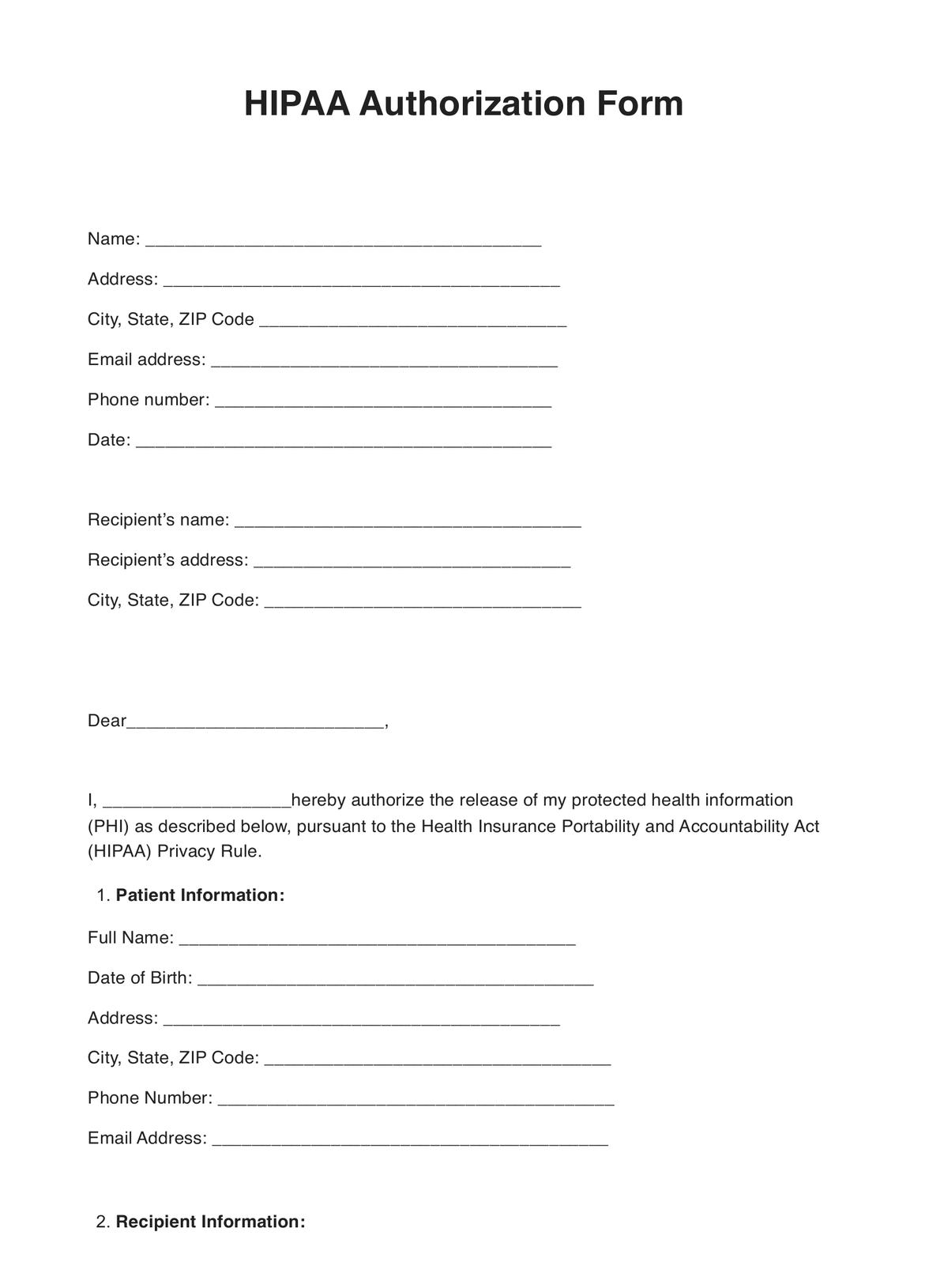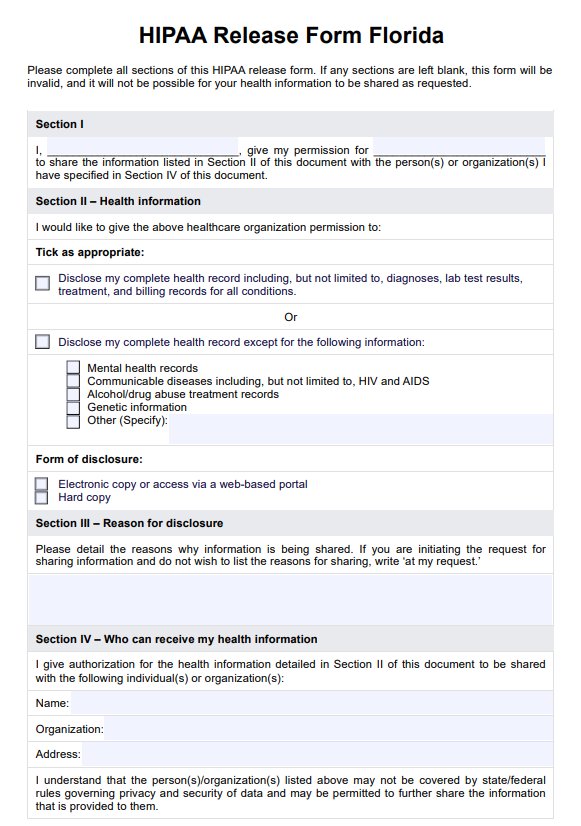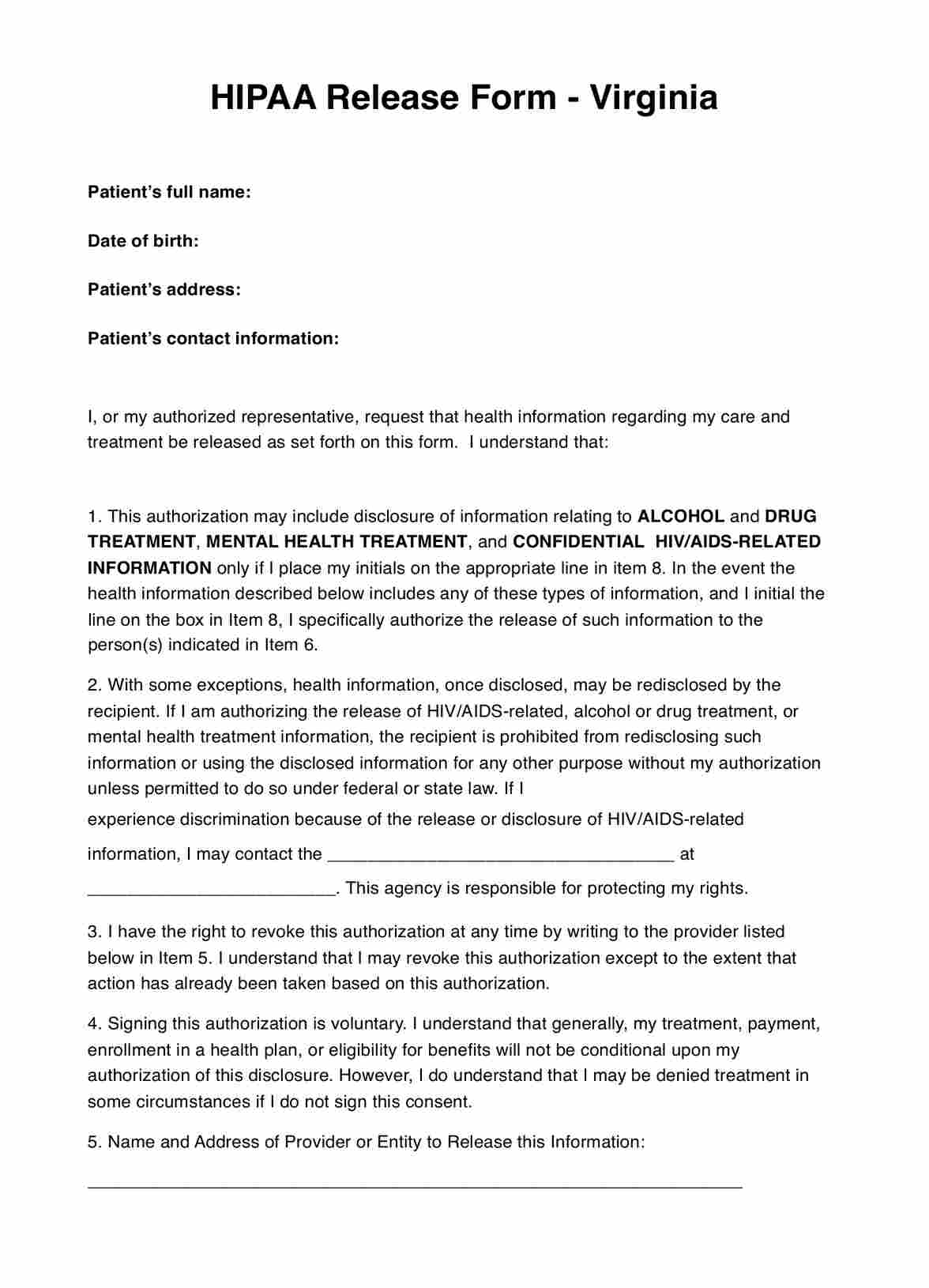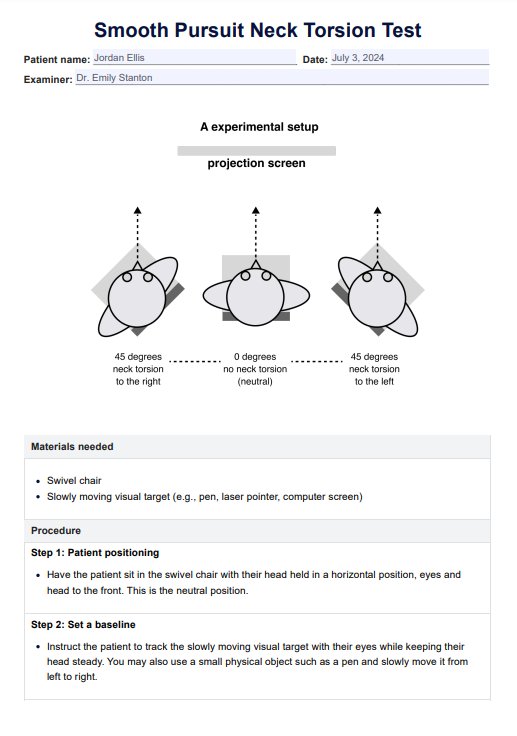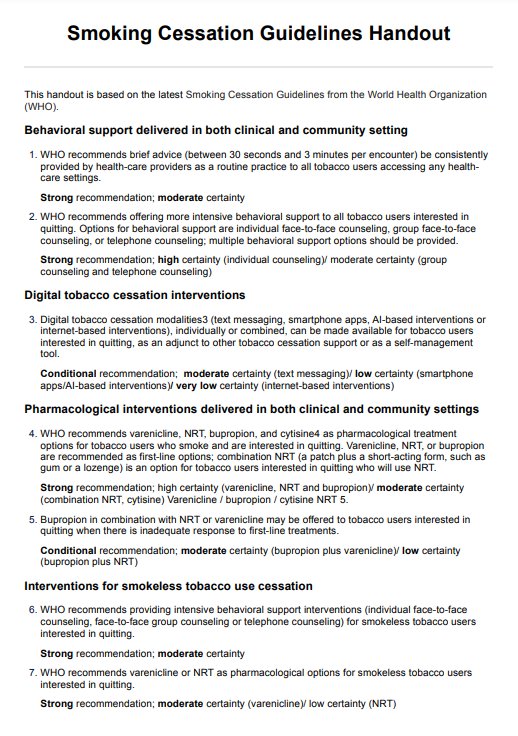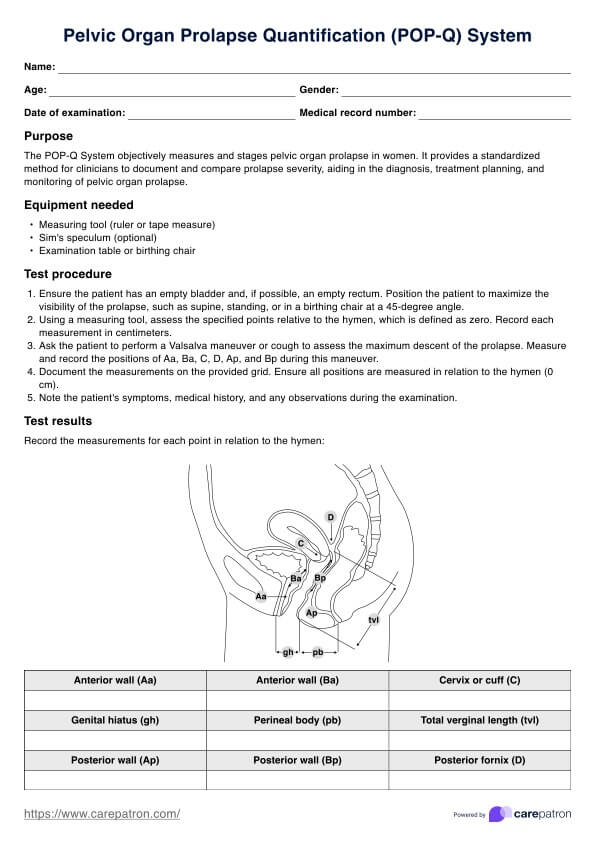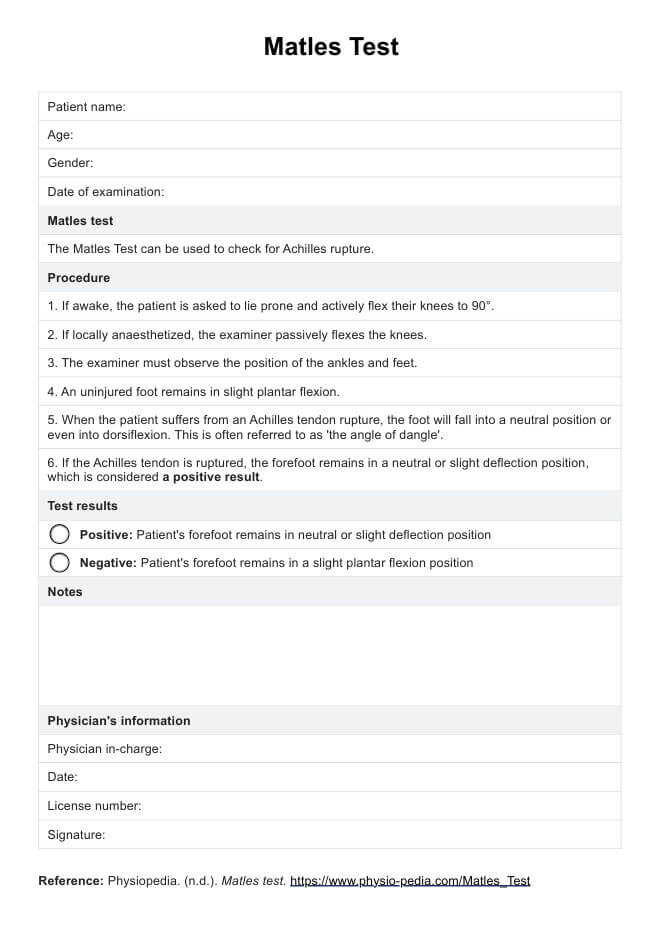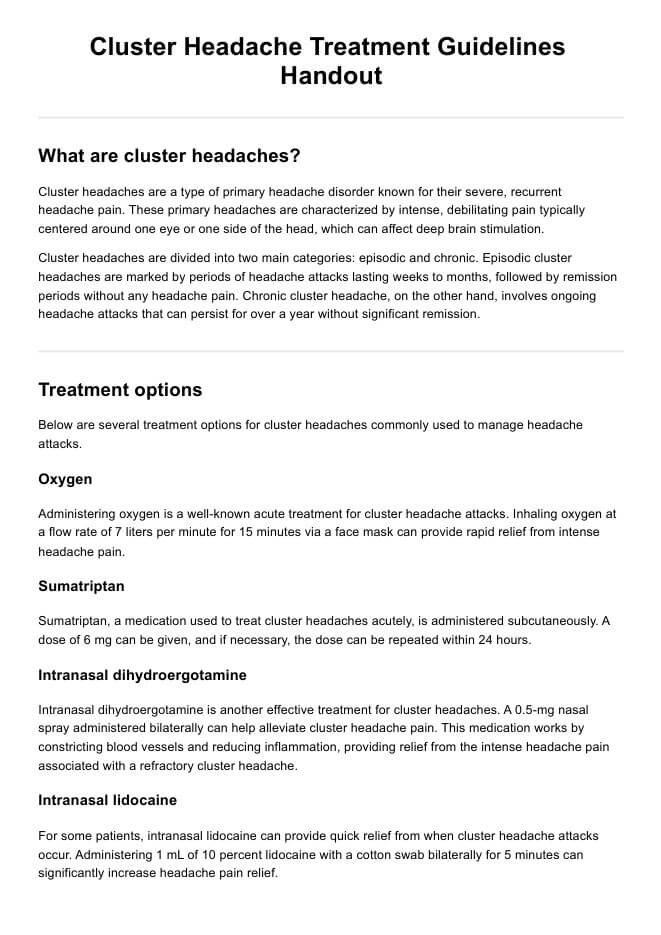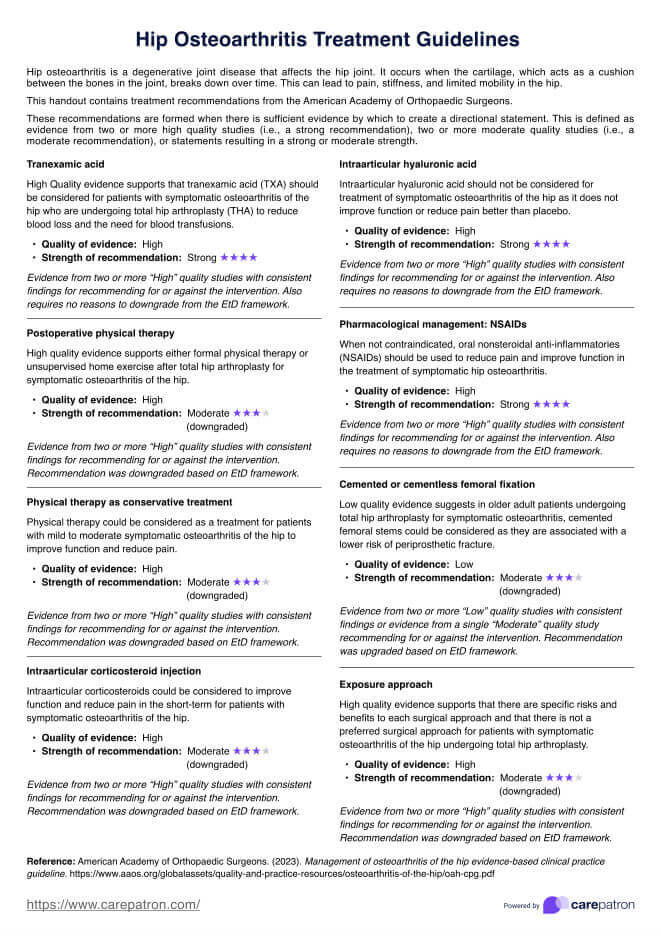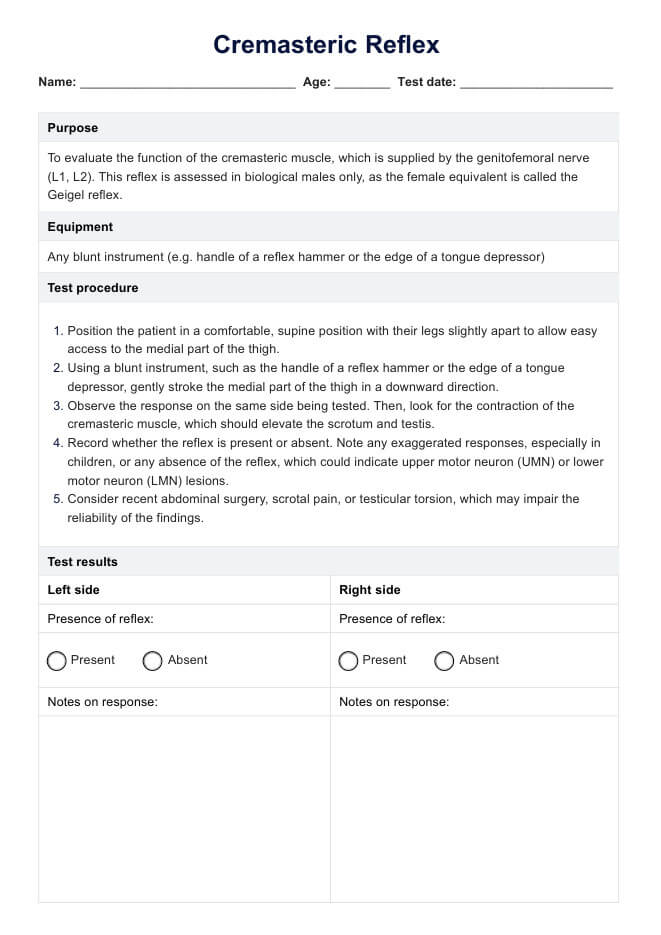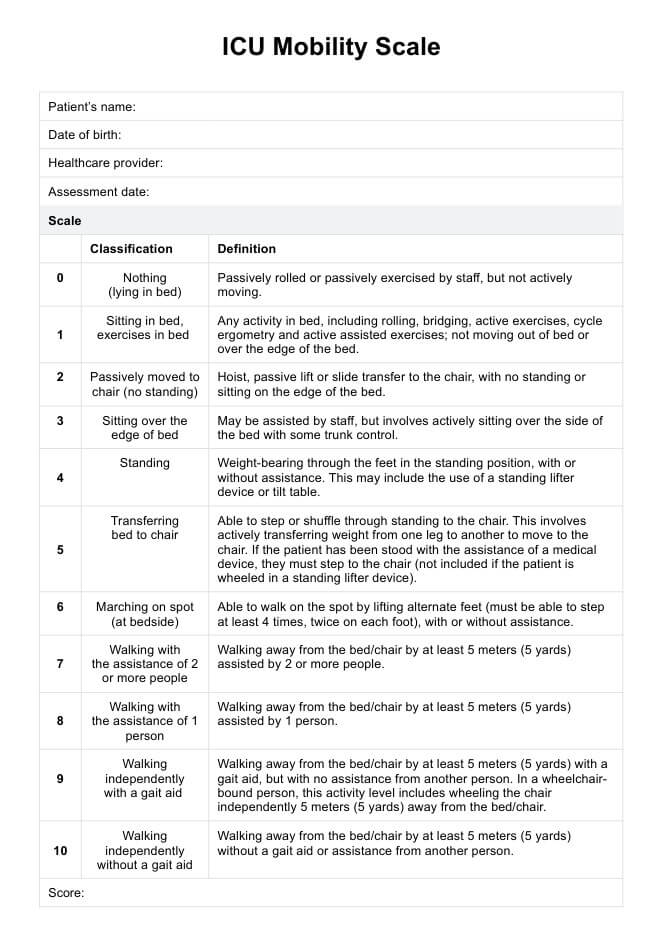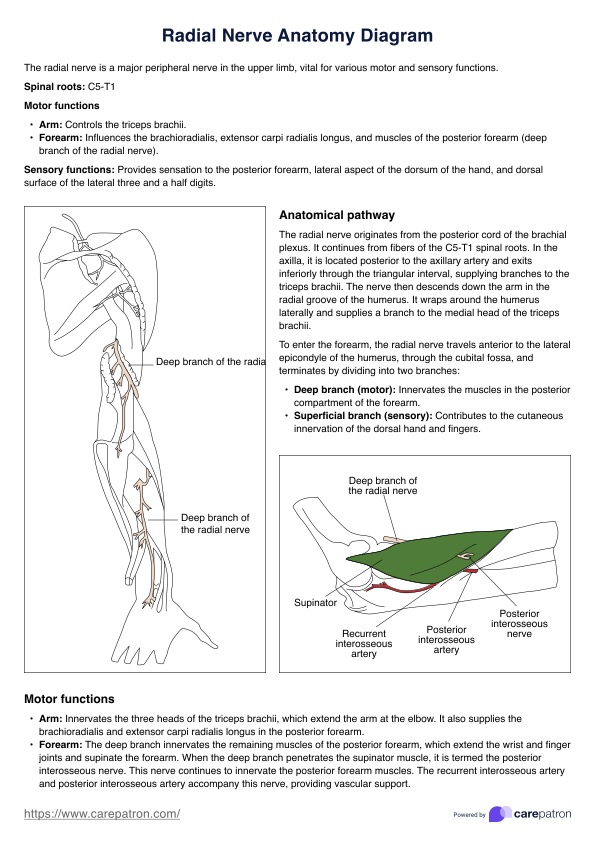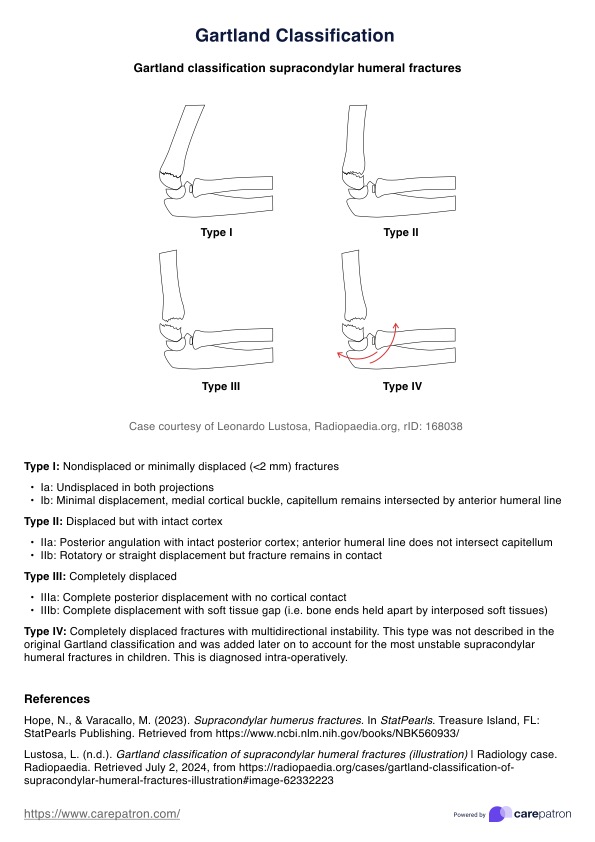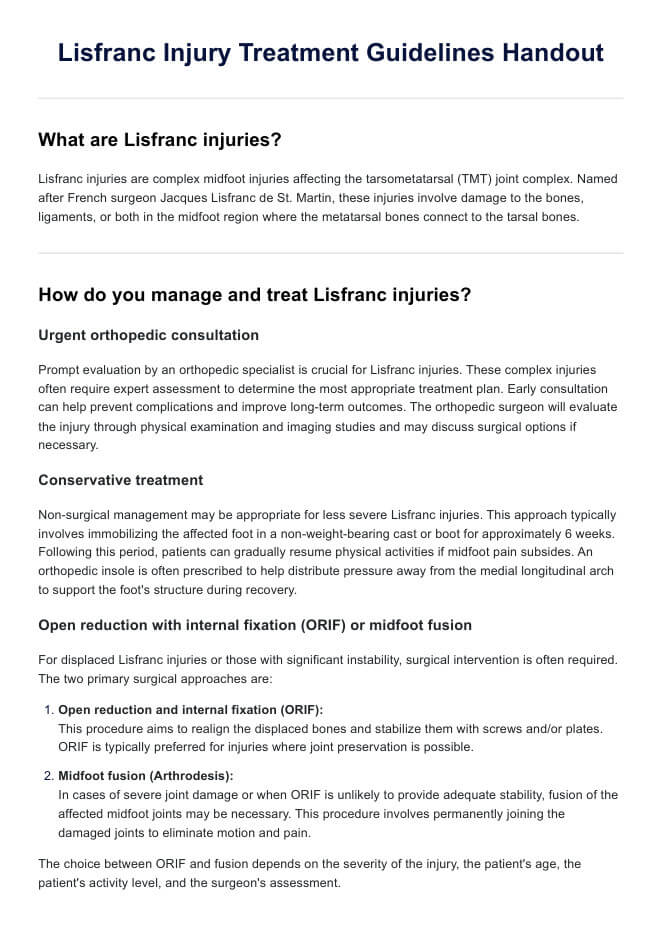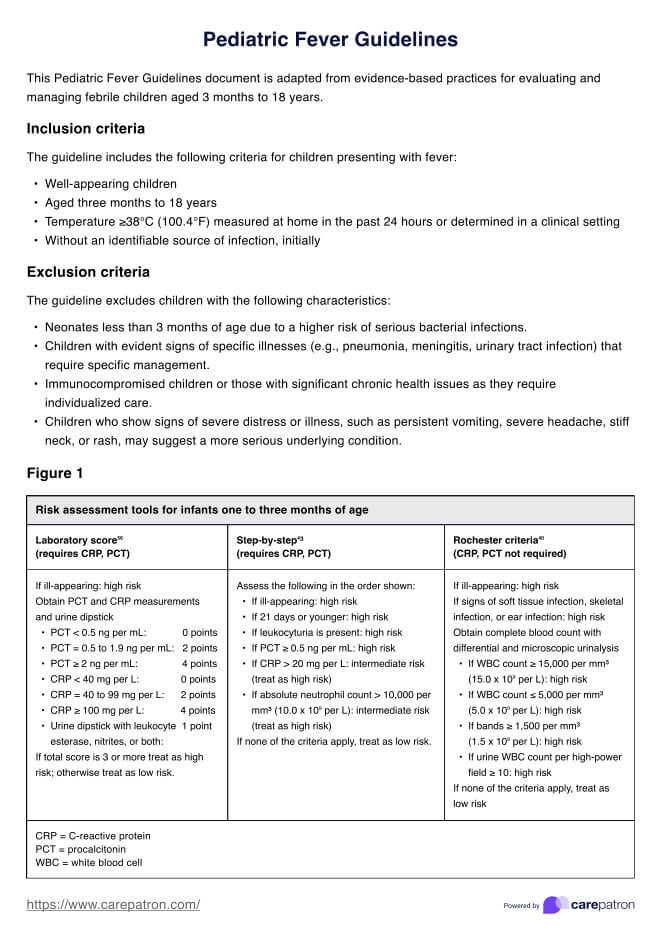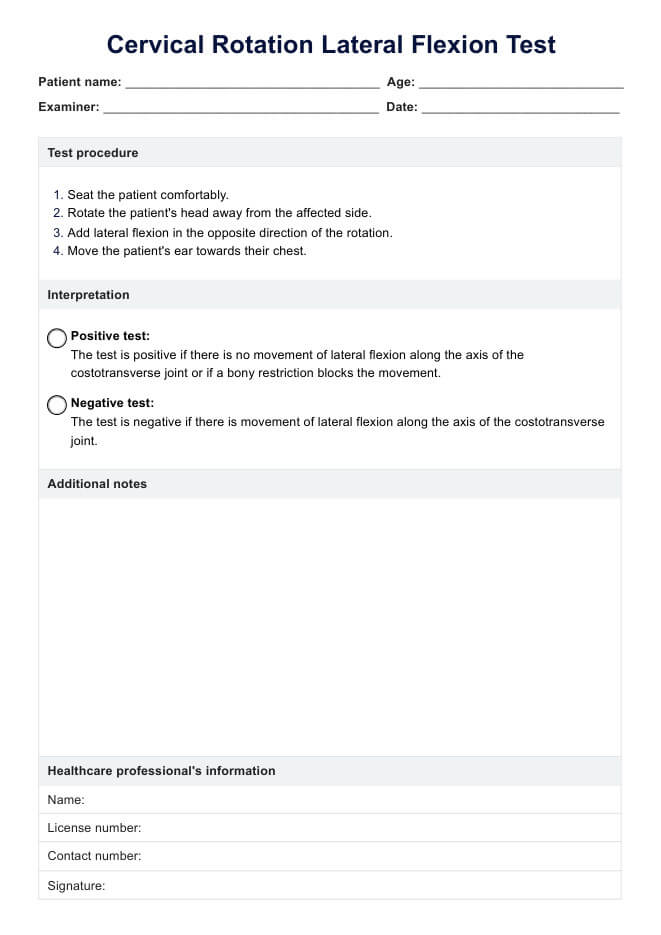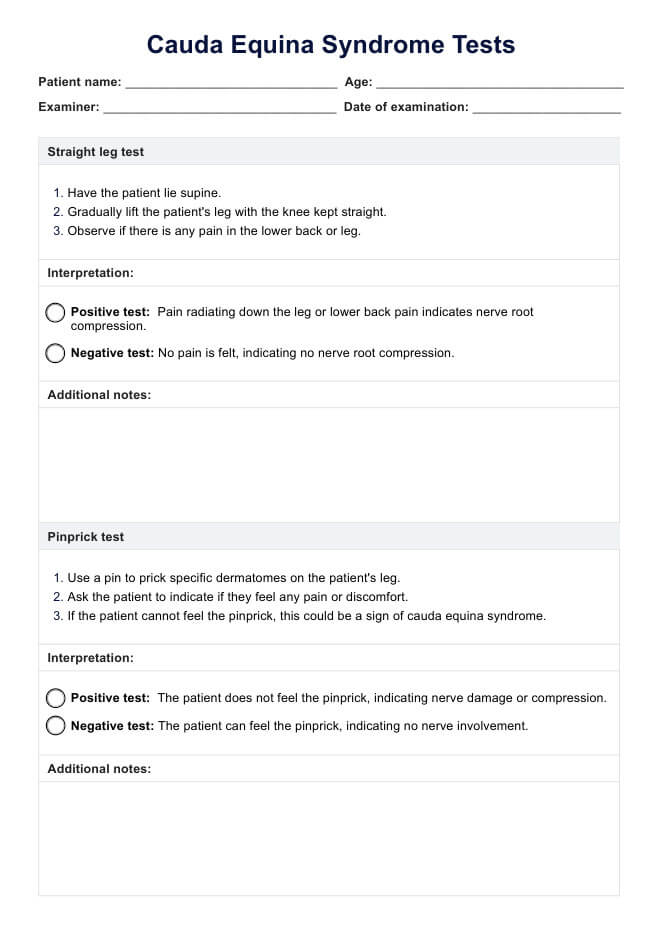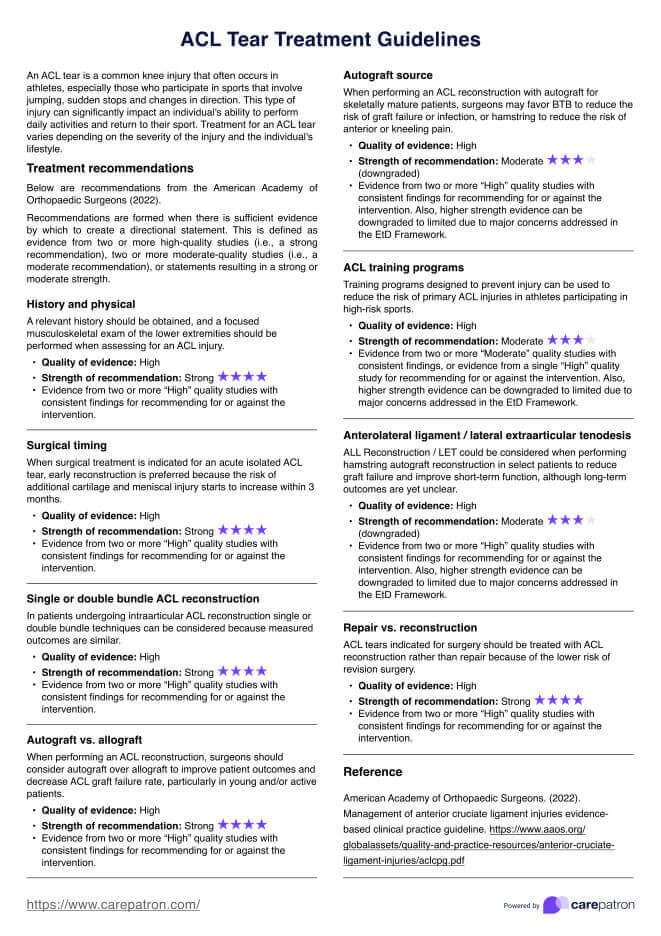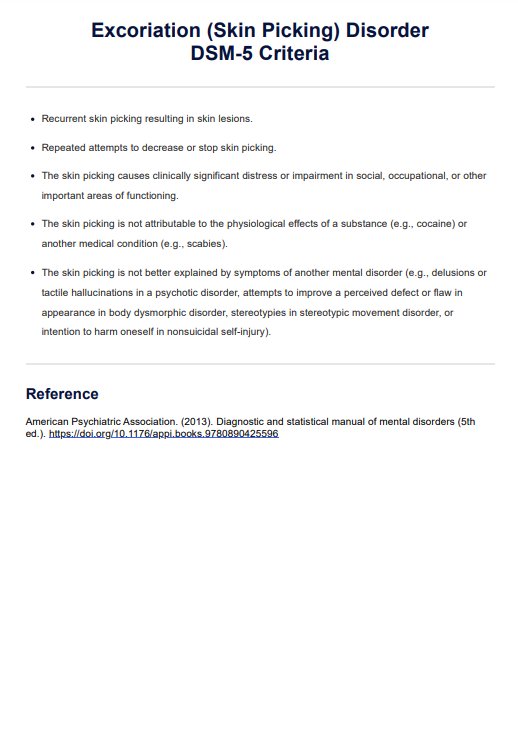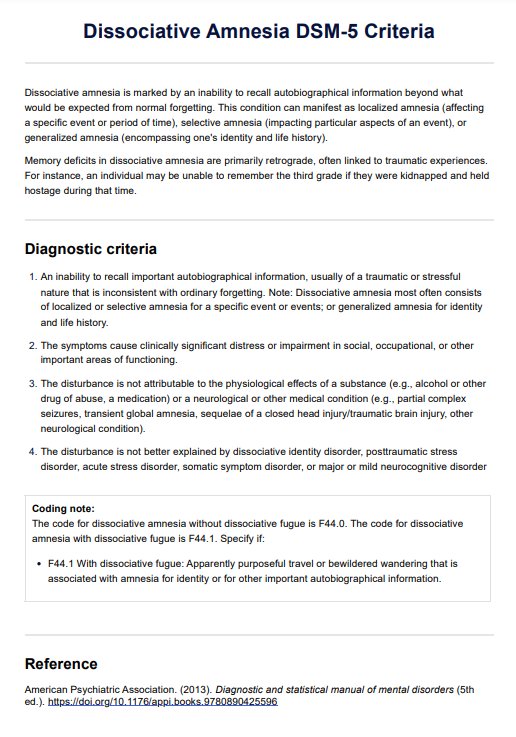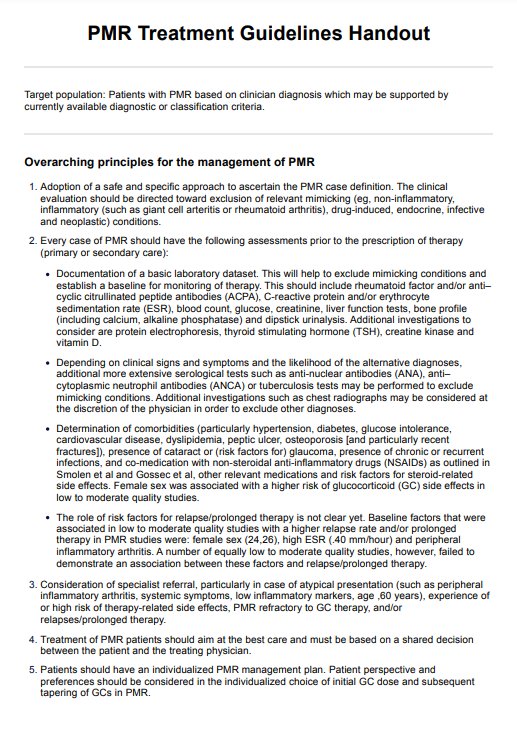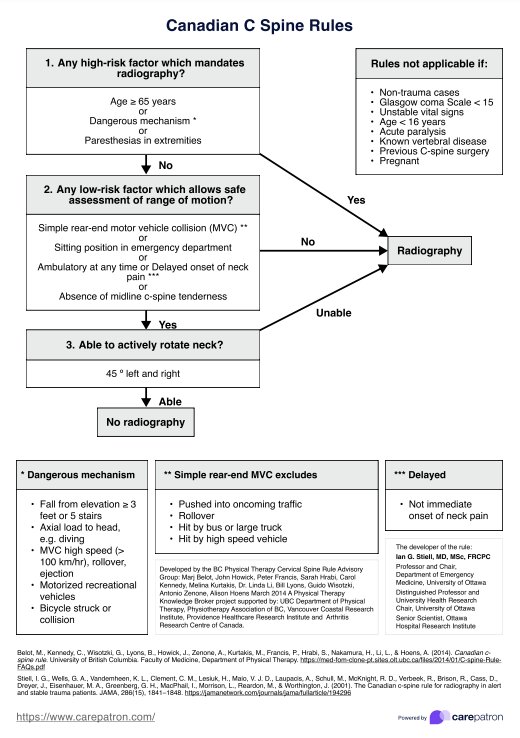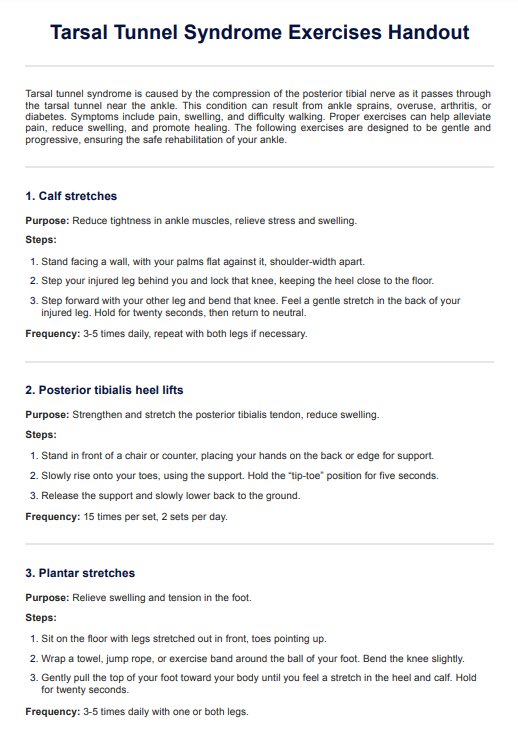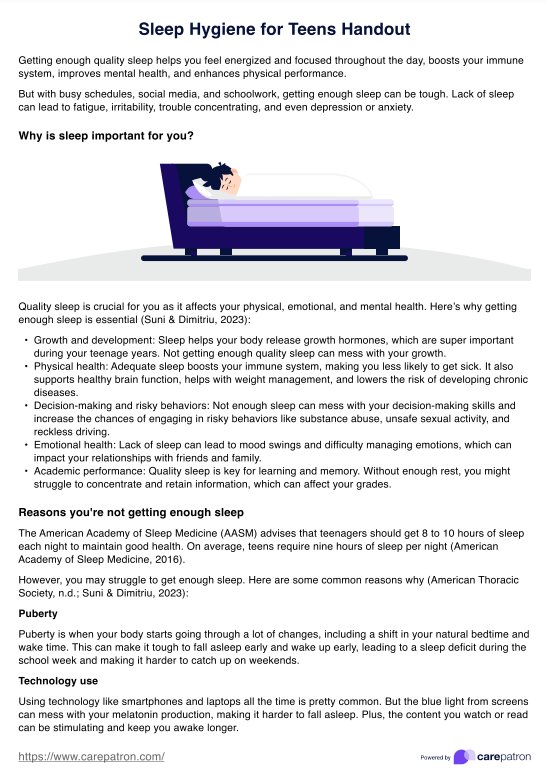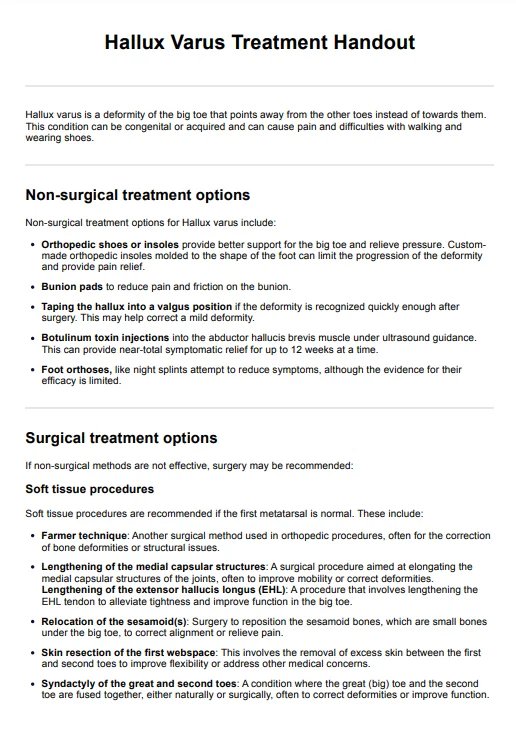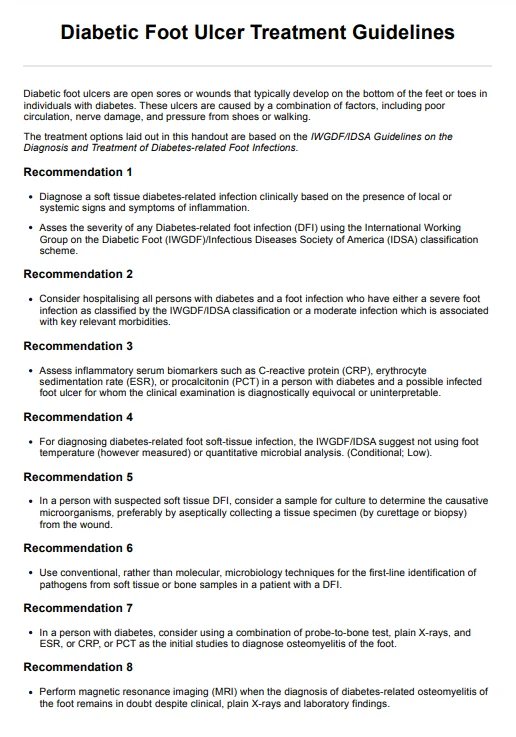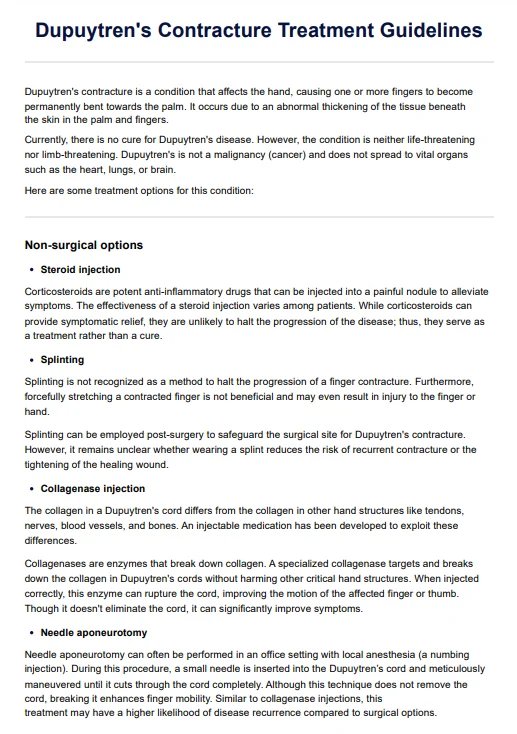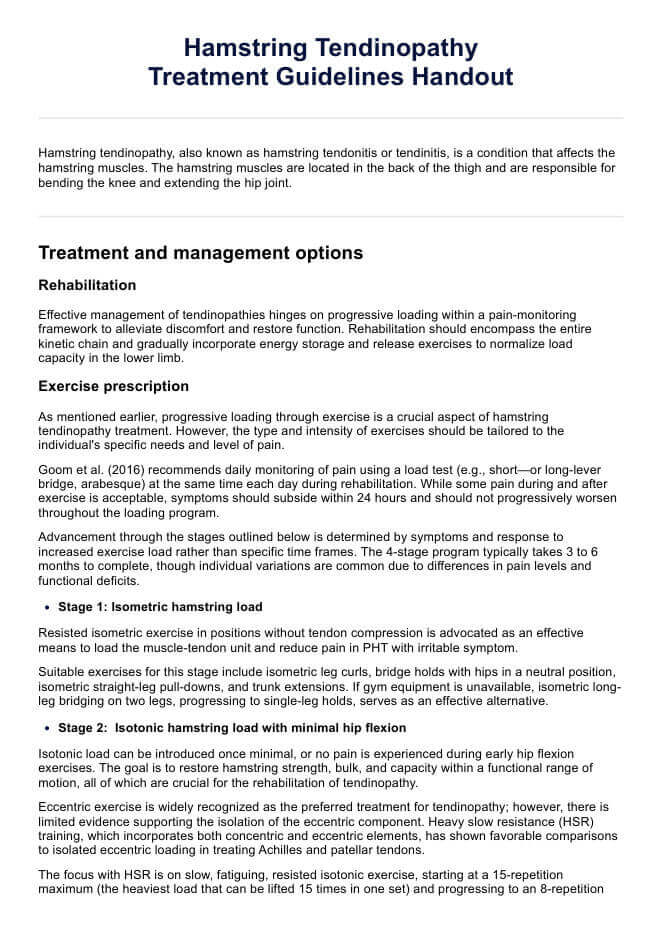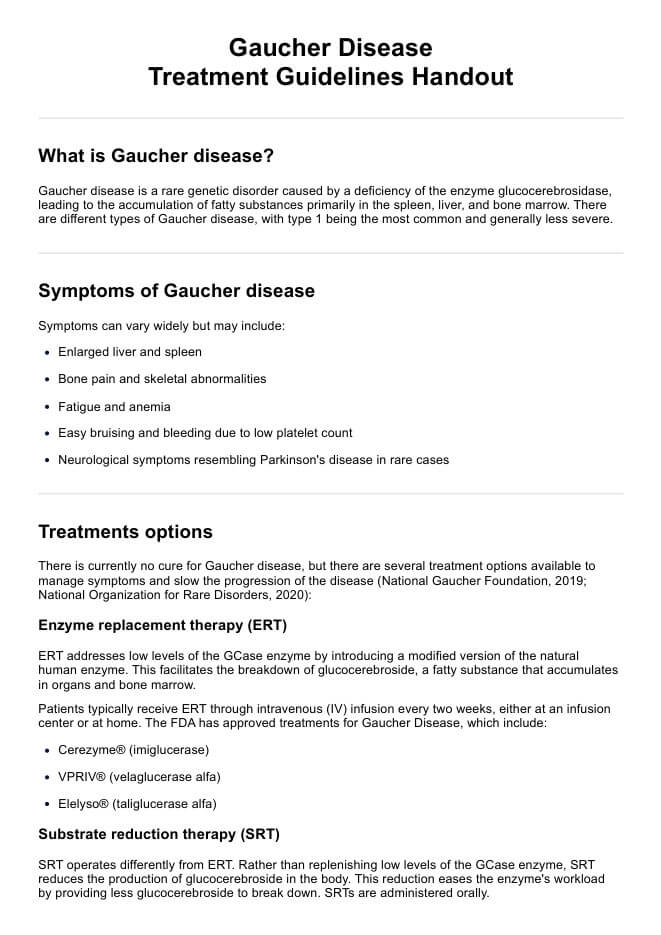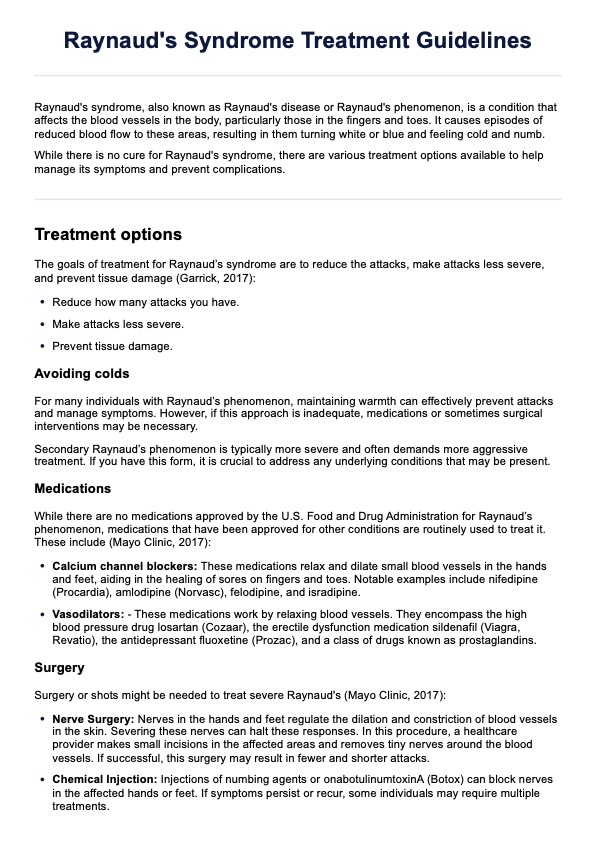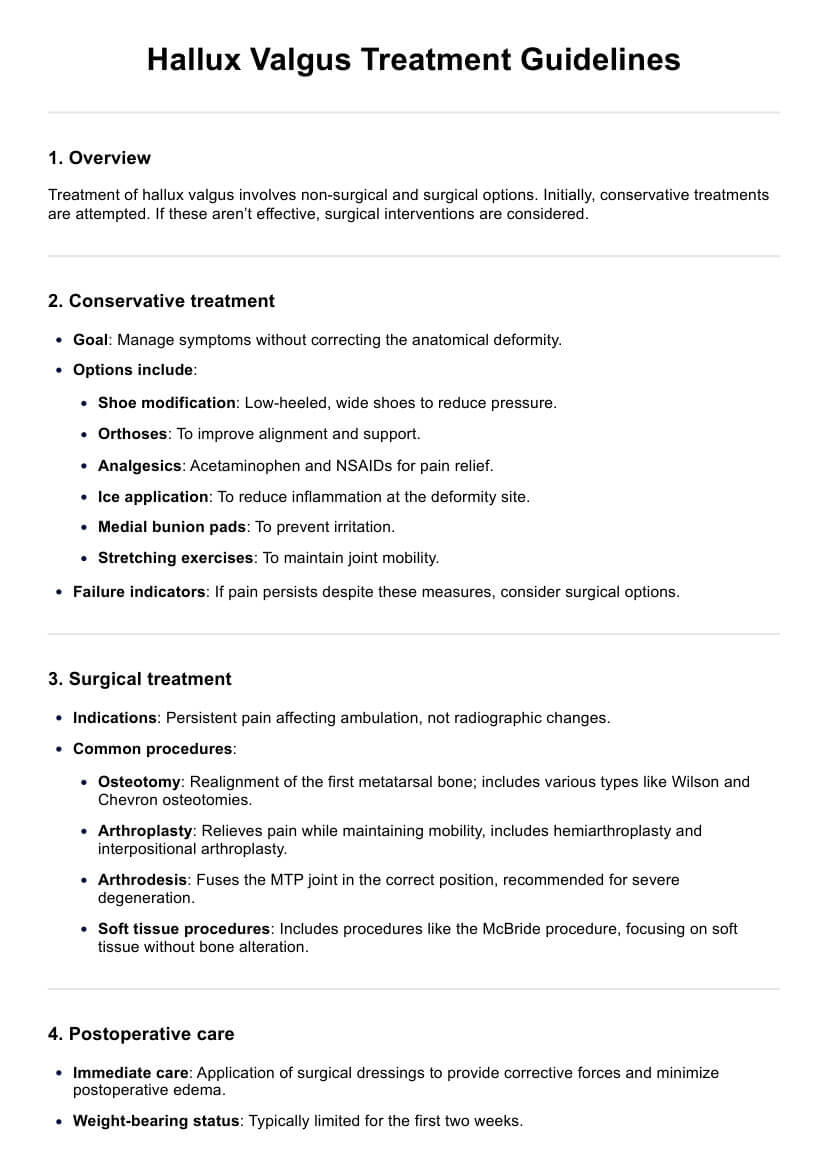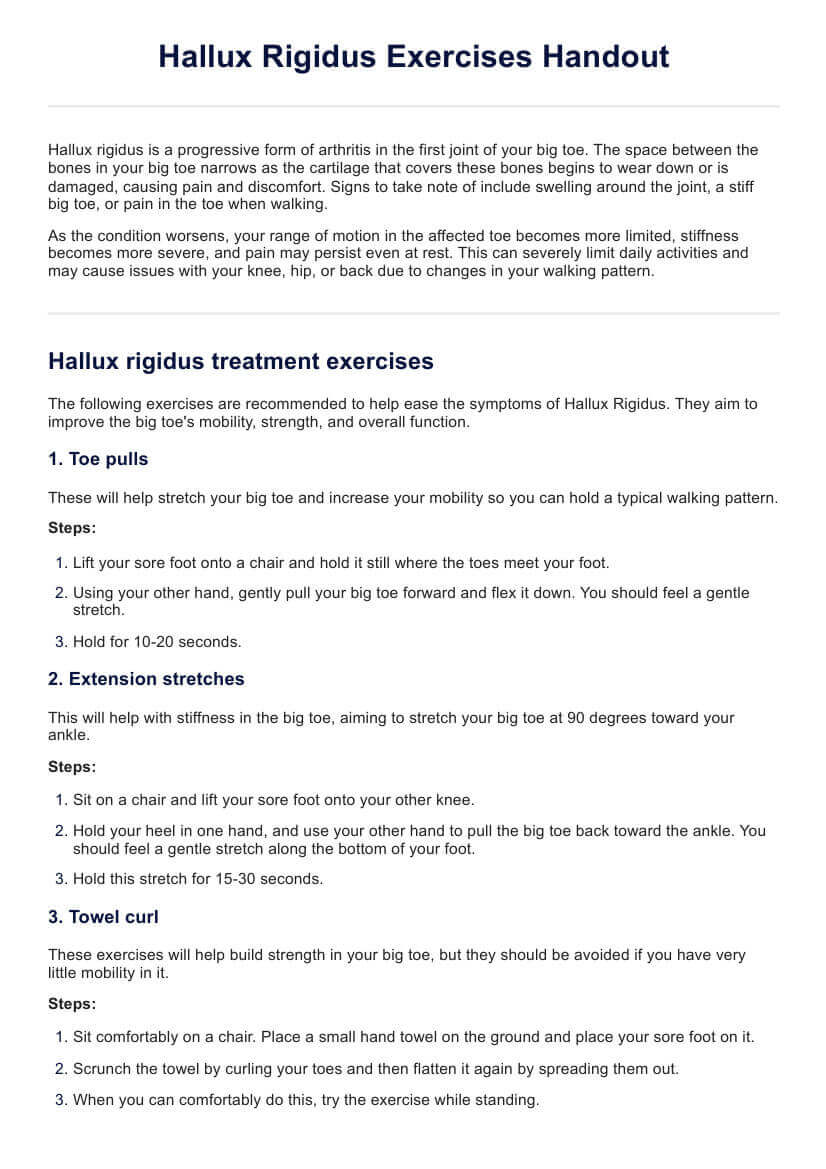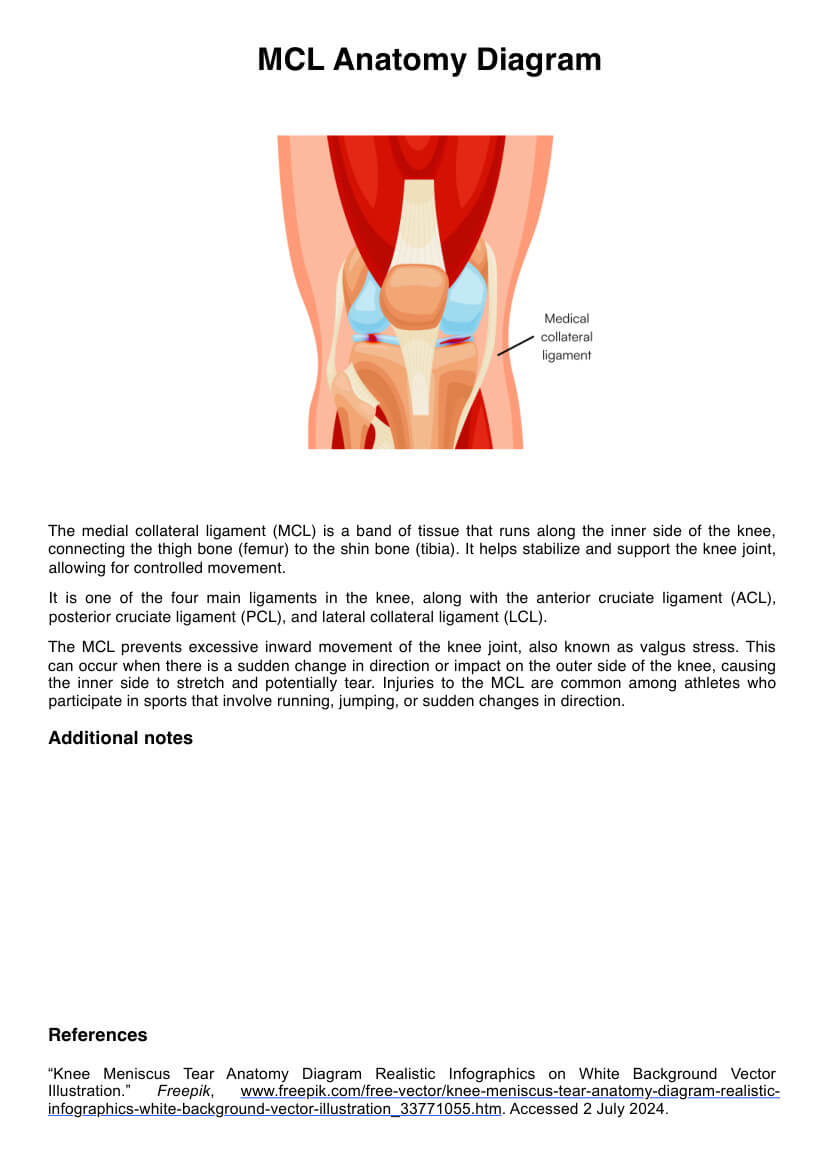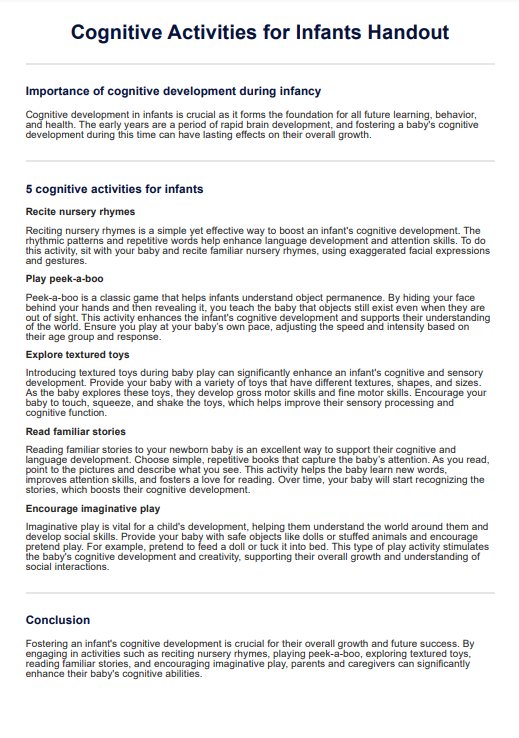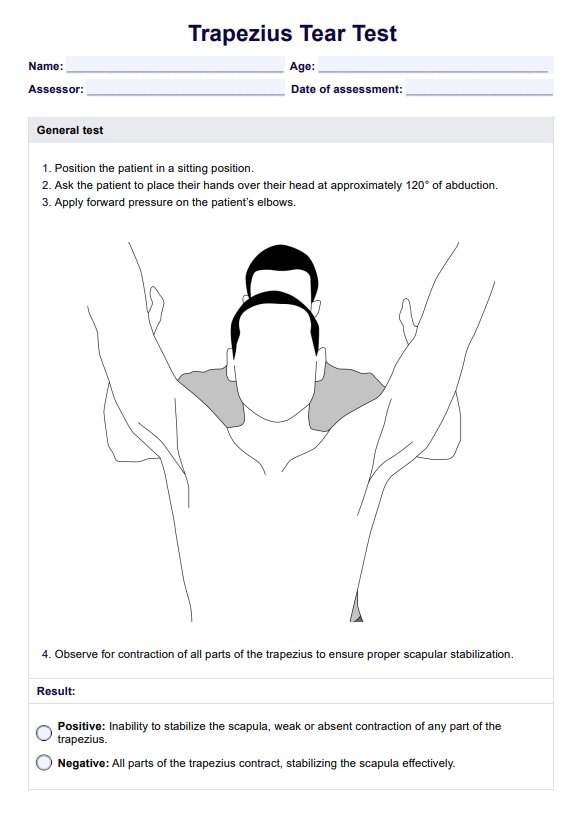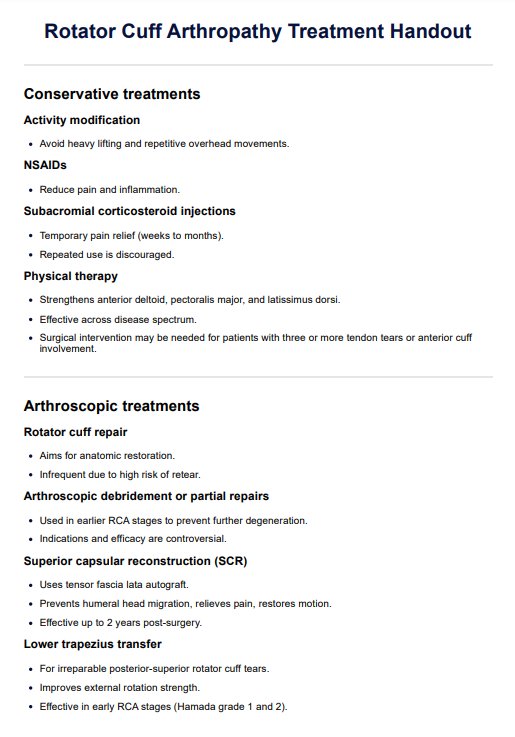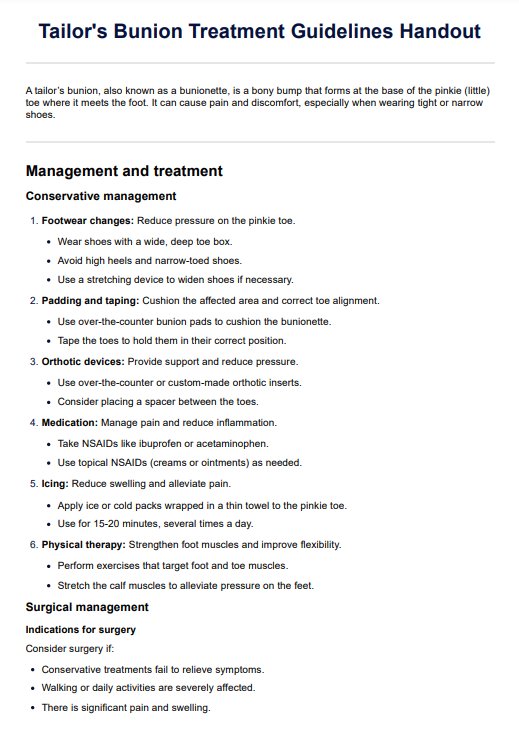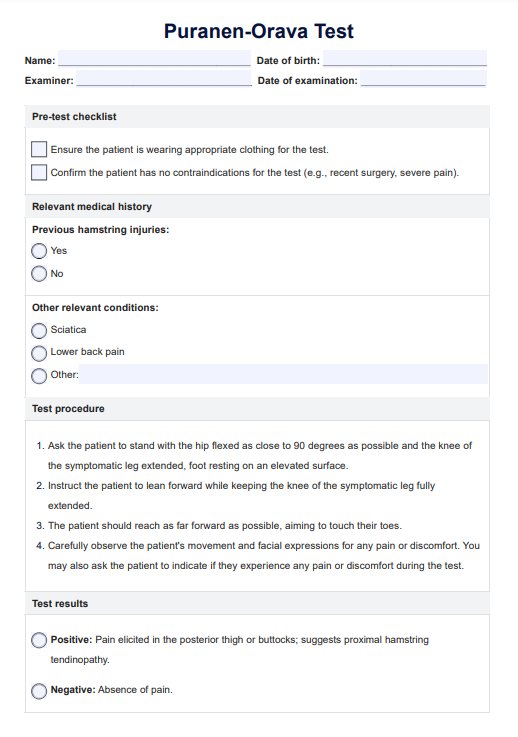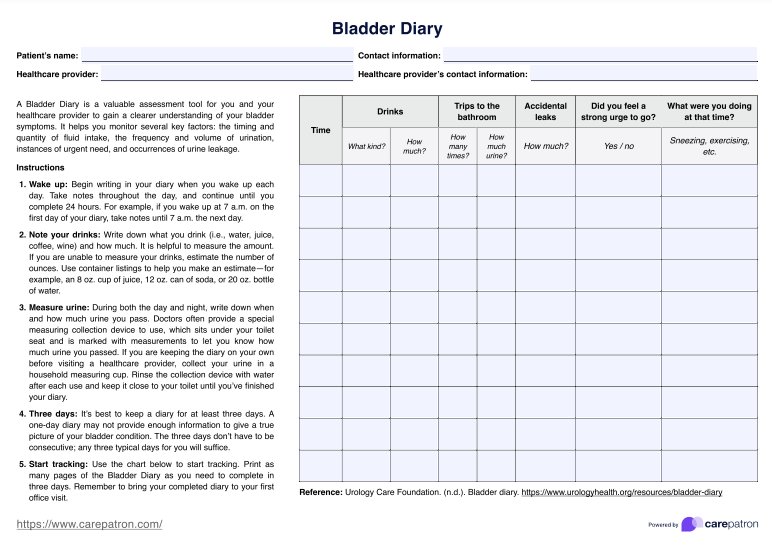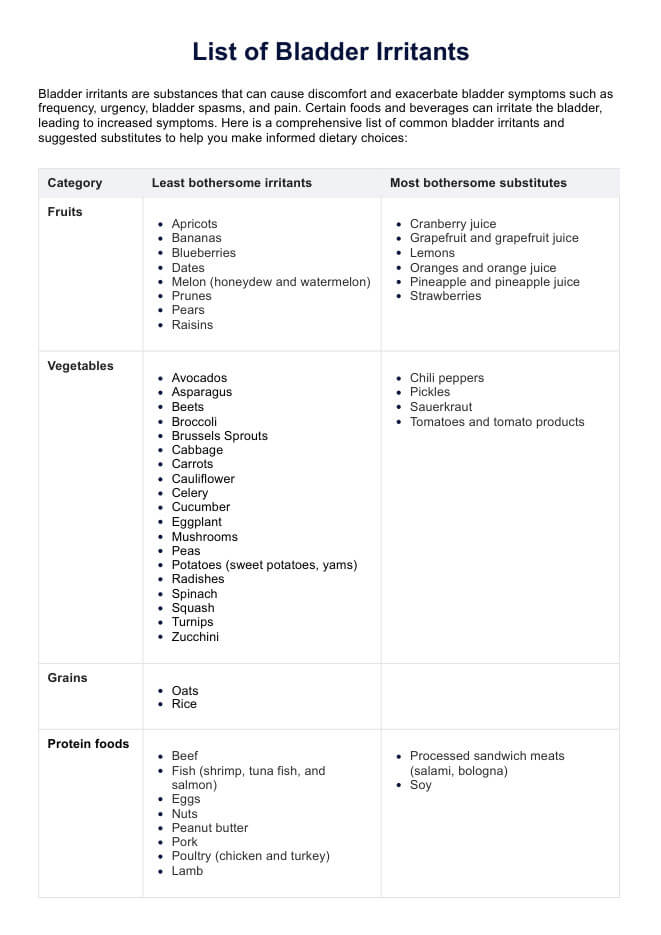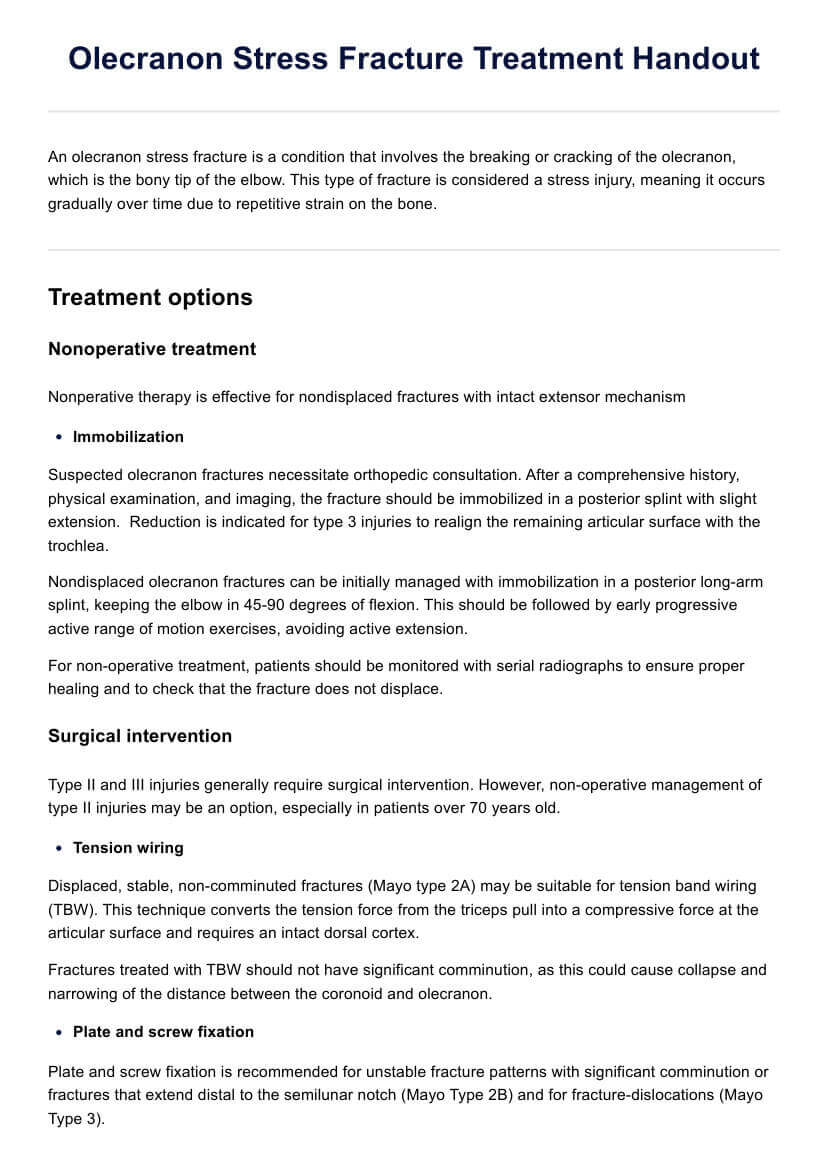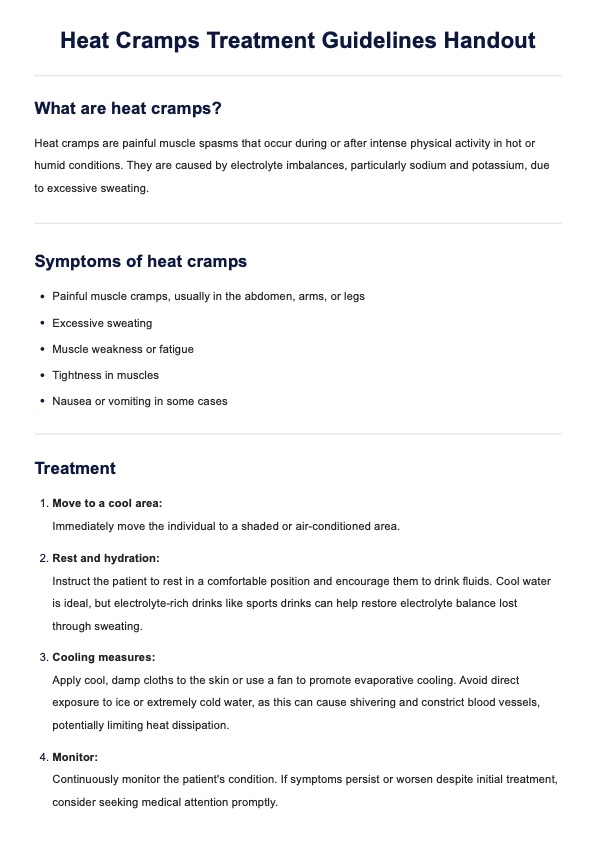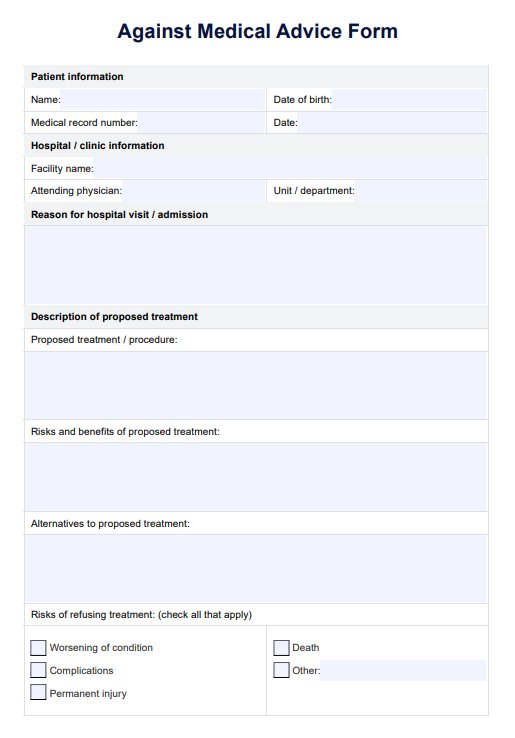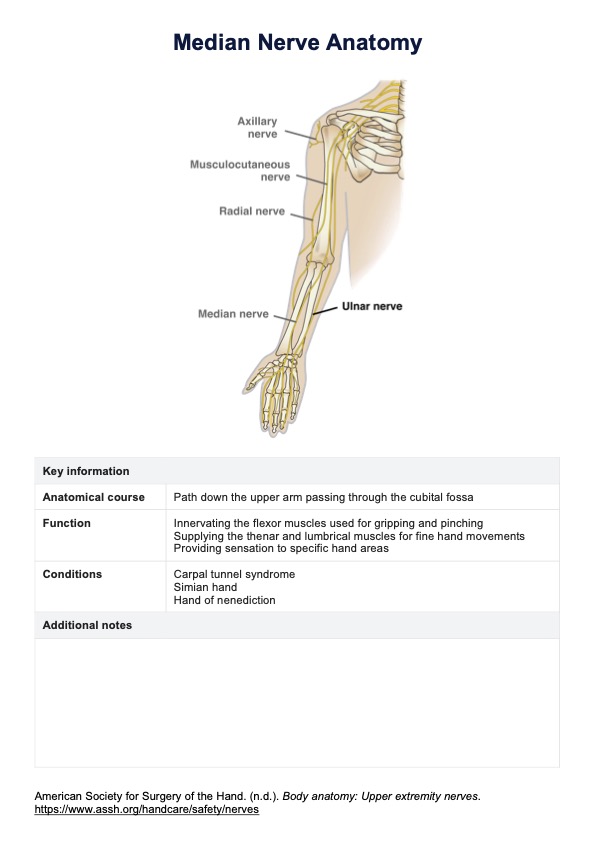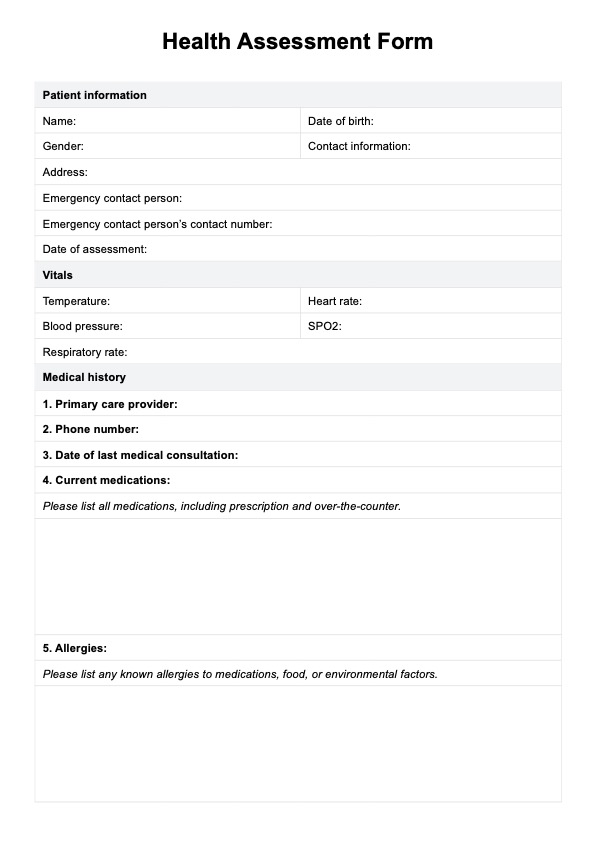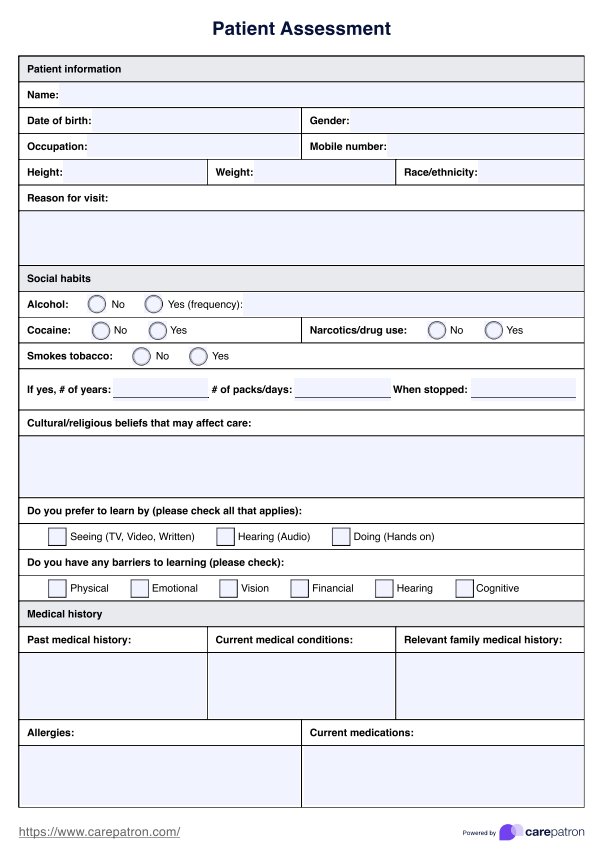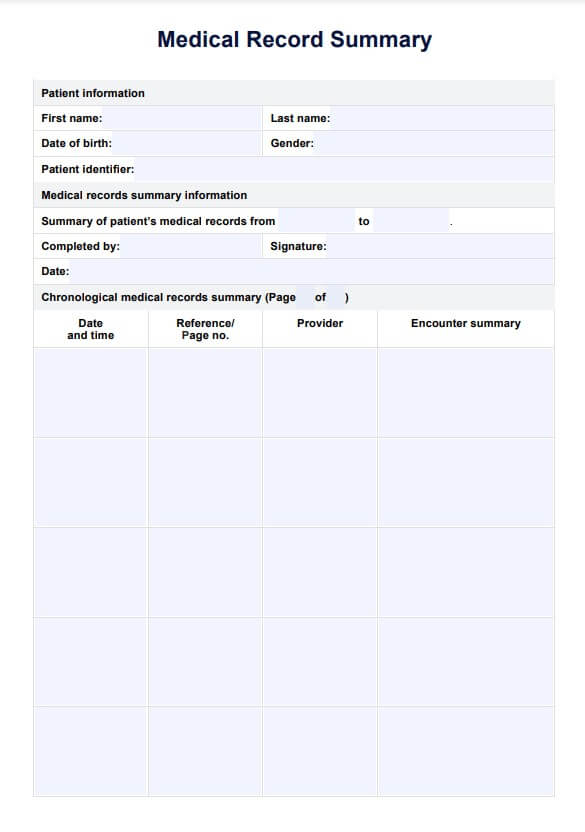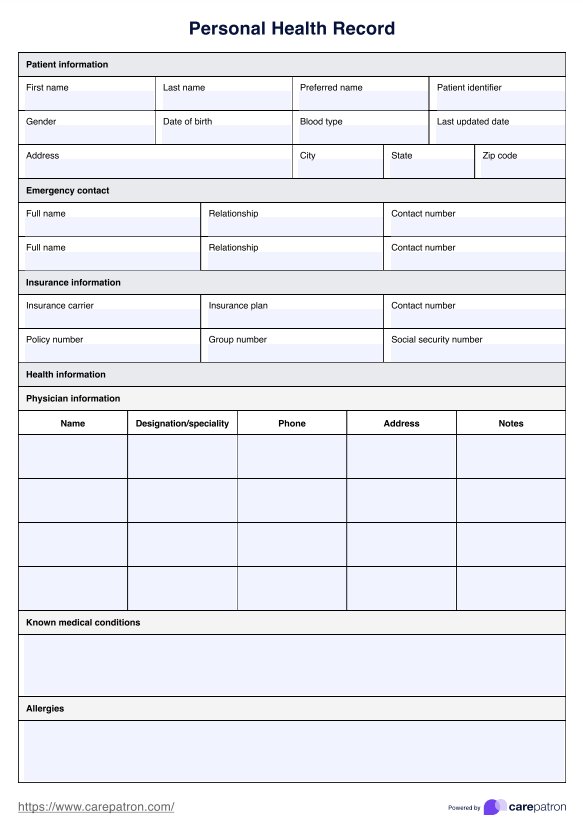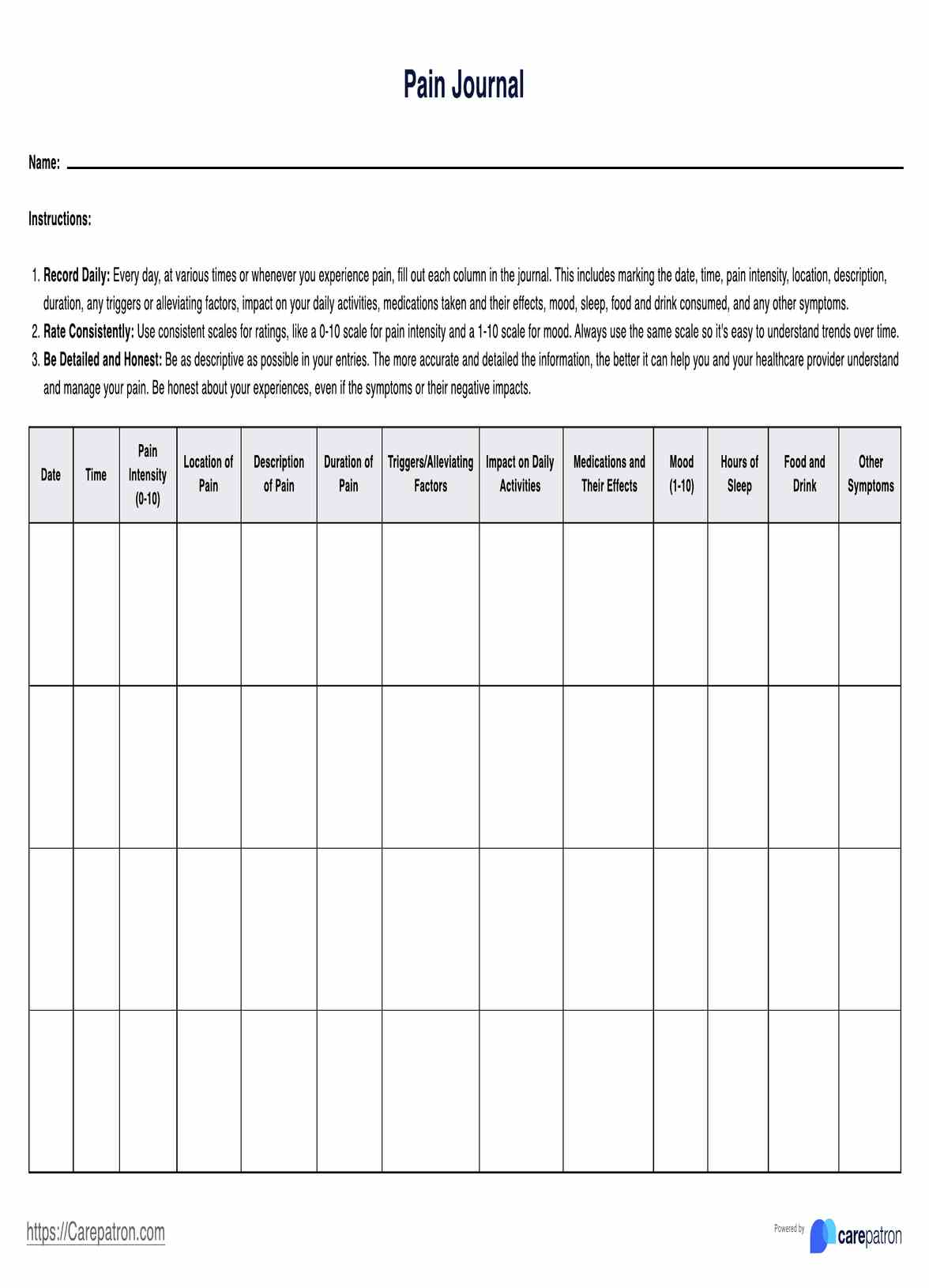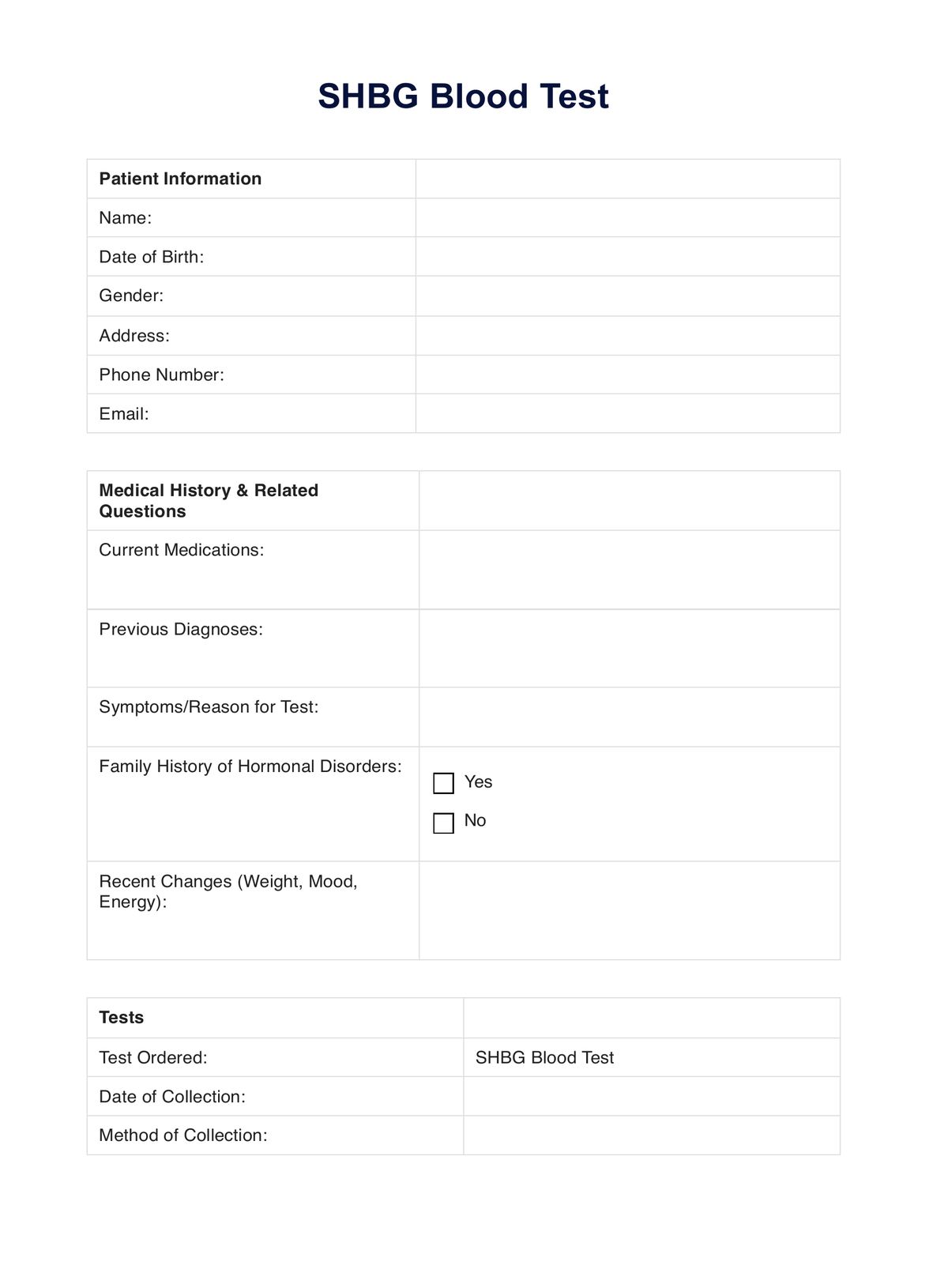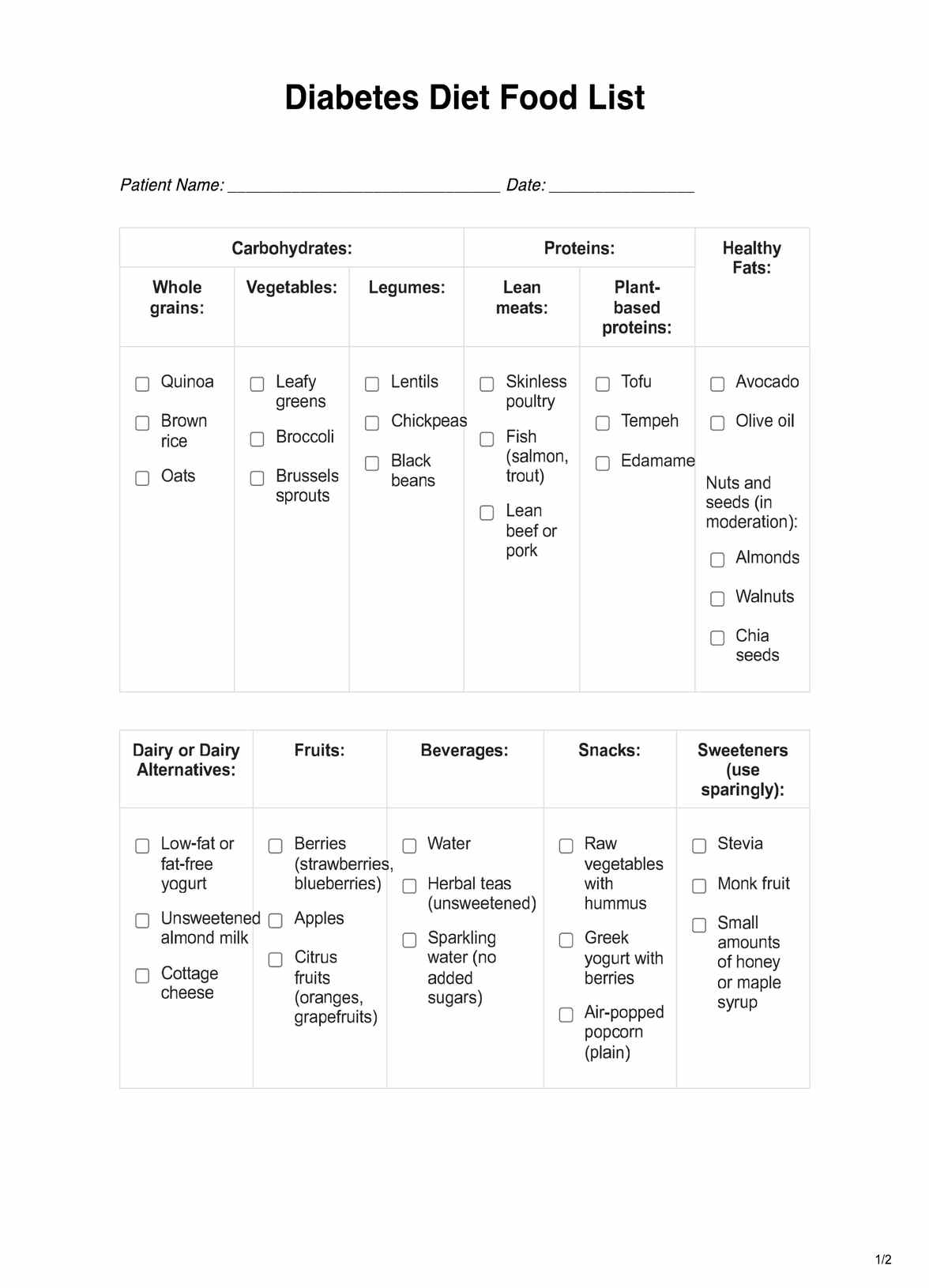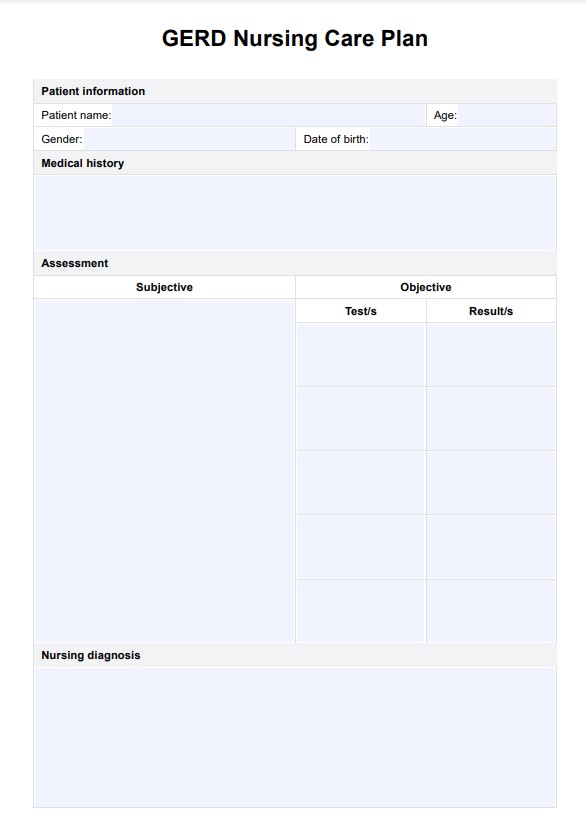HIPAA Waiver Forms
Explore HIPAA Waiver Forms: Understand their purpose, use, and benefits with practical examples. Get your free PDF download of a sample HIPAA waiver form.


What is a HIPAA Waiver Form?
A HIPAA Waiver of Authorization Form is a crucial document that enables healthcare providers to utilize or disclose a patient's protected health information (PHI) without their express permission.
Under the regulations outlined by the Health Insurance Portability and Accountability Act (HIPAA), this waiver is used in specific scenarios, such as research or public health situations.
HIPAA, a federal law enacted in 1996, safeguards the privacy of an individual's health data. Ordinarily, a healthcare provider must obtain a patient's authorization before releasing their PHI. However, a HIPAA waiver form can waive this requirement under certain conditions, like contributing to the greater good of public health or advancing a significant research study.
A may also be used in situations like California's "Right to Know" law, where an individual's PHI may need to be disclosed without explicit authorization.
HIPAA Waiver Forms Template
HIPAA Waiver Forms Example
How does it work?
As we delve into healthcare privacy and compliance, understanding key documents such as the HIPAA Waiver Form becomes evident. Serving as an essential tool in scenarios where protected health information (PHI) needs to be accessed without explicit patient consent, the HIPAA Waiver Form is vital in areas like research and public health initiatives. But how exactly does this form work, and what steps are involved in its effective usage? Let's delve into the process.
A HIPAA waiver form, like the printable HIPAA waiver form template, operates under a structured process:
Step 1: Obtain the Form
First, you must obtain the HIPAA waiver form. This form could be available at your healthcare institution, or you can download a sample HIPAA waiver form from a reputable online source like Carepatron.
Step 2: Fill in the Required Information
You must then complete the necessary information, including details about the person or entity authorized to disclose the information, the individual whose information will be disclosed, the data to be disclosed, and the purpose of the disclosure.
Step 3: Submit the Form
After completing the form must be submitted to the concerned authority, such as an Institutional Review Board (IRB) or a Privacy Board, for approval.
When would you use this Template?
The HIPAA Waiver Form Template is versatile and can be used in a variety of scenarios where access to PHI without explicit patient authorization is required:
In Medical Research
One of the most common uses of a HIPAA waiver form is in medical research. Researchers may need access to large amounts of PHI to conduct a study. Obtaining individual consent from each patient could be impractical or impossible, especially in large-scale studies. The researchers can apply for a waiver to access the needed information in such cases.
During Public Health Crises
In public health emergencies, like a pandemic, healthcare authorities may need access to PHI to monitor the spread of disease, assess risks, and implement public health measures. The HIPAA waiver form allows this information to be accessed and used without individual patient authorization.
Audits and Healthcare Operations
Sometimes, healthcare providers may need to access PHI for operational purposes, such as internal audits, quality assessments, improvement activities, or training programs. A HIPAA waiver form can be used to permit such activities.
Legal and Administrative Proceedings
In some situations, PHI may need to be disclosed for legal or administrative proceedings. This could include court orders, administrative tribunals, or other legal requirements. A HIPAA waiver form can allow for the necessary disclosure of PHI.
In Social or Welfare Activities
In certain cases, social or welfare organizations may need access to PHI to provide support services to individuals. This could include social services, housing assistance, or other community services. A HIPAA waiver form can permit such access to PHI.
Each of these scenarios underscores the HIPAA Waiver Form Template's essential role in facilitating the legal and ethical use of PHI.
Benefits
Navigating the complex world of health information privacy can be a daunting task. However, the process becomes much more manageable with tools such as the HIPAA waiver forms. These forms provide a clear, legal pathway for healthcare providers to access and utilize essential protected health information (PHI) when direct patient authorization is not feasible.
This has major implications for advancing research, managing public health crises, and improving overall patient care.
Here are the benefits of using HIPAA waiver forms for both healthcare providers and patients:
1. Standardization
Free HIPAA Waiver Forms provide a standardized process for requesting access to PHI without individual authorization. This uniformity simplifies the procedure, ensures consistency across different scenarios, and makes educating staff and patients about the process easier.
2. Compliance
HIPAA regulations require healthcare providers to obtain patient authorization before disclosing their PHI. However, HIPAA waiver forms provide a legal pathway to bypass this requirement in specific situations. By using these forms, healthcare providers can ensure they remain compliant with the law while still accessing necessary PHI.
3. Facilitates Research and Public Health Initiatives
HIPAA waiver forms facilitate essential activities like research and public health initiatives. By granting researchers and public health officials access to PHI, these forms support advancing medical knowledge and managing public health crises.
4. Transparency and Trust
Though HIPAA waiver forms allow healthcare providers to access PHI without patient authorization, they still promote transparency. The forms clearly state who is accessing the information and why, helping to maintain trust between healthcare providers and patients.
5. Efficiency
HIPAA waiver forms contribute to operational efficiency. In scenarios where obtaining individual authorizations is impractical, time-consuming, or potentially impossible, these forms expedite the process. They allow healthcare providers, researchers, and public health officials to focus on their primary objectives, such as patient care, advancing medical research, or managing public health crises, without being unduly burdened by administrative procedures.
This efficiency can lead to faster results in research findings or responses to public health emergencies.
Research & Evidence
HIPAA was enacted in 1996 to protect individuals' health information privacy. Since then, it has been instrumental in safeguarding PHI while providing pathways, like the HIPAA authorization waiver, for information to be accessed when necessary. Researchers have used such waivers to conduct studies with advanced medical knowledge and improved public health.
In emergencies, the waivers have been crucial in efforts to control and prevent the spread of diseases.
The effectiveness and importance of HIPAA waiver forms have been evidenced by their extensive use in situations where access to PHI is essential but explicit patient authorization is impractical or impossible. Their ongoing use in medical research and public health initiatives testifies to their utility and value.
References
U.S. Department of Health & Human Services. (2013). HIPAA for Professionals.
U.S. Department of Health & Human Services. (2008). Institutional Review Boards.
Commonly asked questions
Primarily, HIPAA Waiver Forms are used by healthcare providers, researchers, and public health officials who need access to protected health information (PHI) for purposes such as research or managing public health crises.
A HIPAA Waiver Form is used when accessing a patient's PHI without their express authorization. This is typically in scenarios like research studies or public health initiatives, where obtaining individual permissions may not be feasible.
A HIPAA Waiver Form is filled out with the required information, including details about the PHI to be disclosed and the purpose of the disclosure. It's then submitted to an authority, such as an Institutional Review Board (IRB), for approval. Once approved, the healthcare provider can access and use the PHI specified in the waiver.


